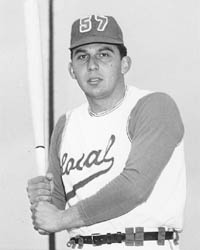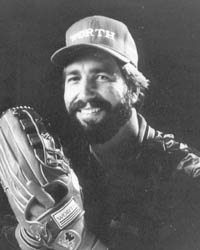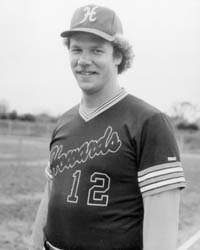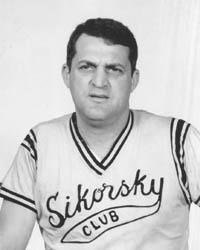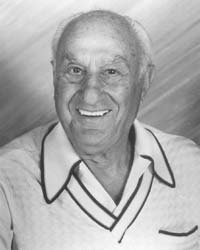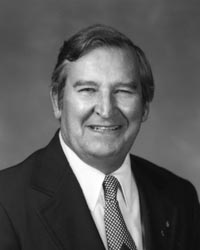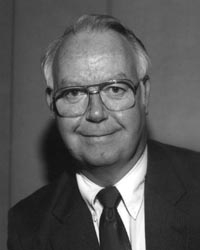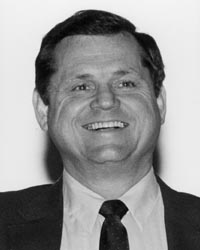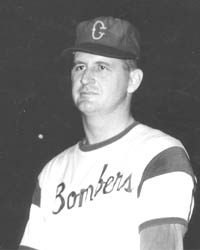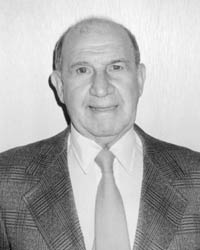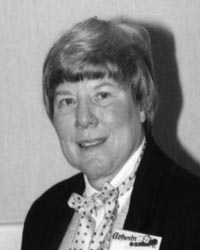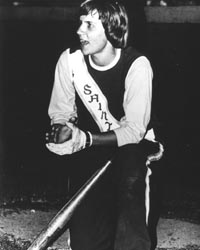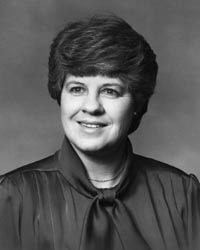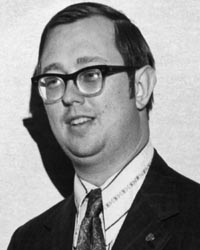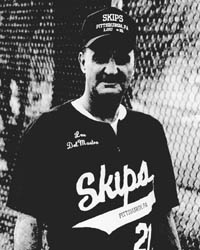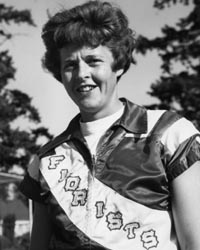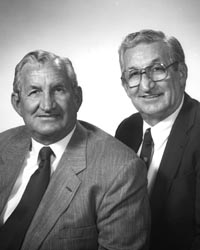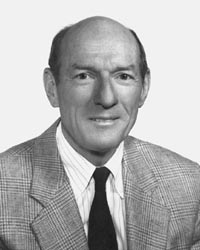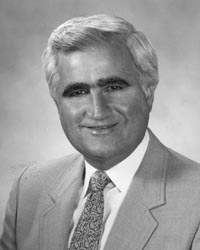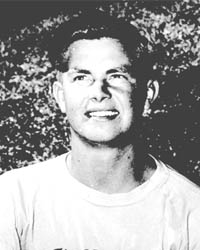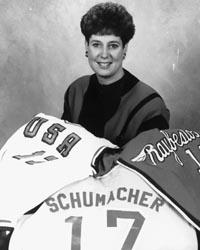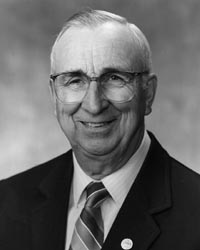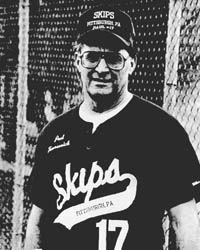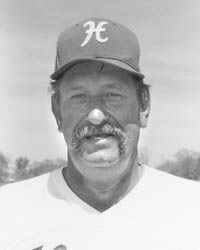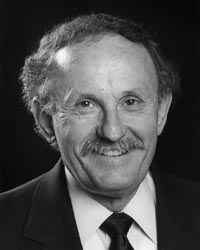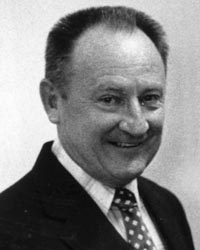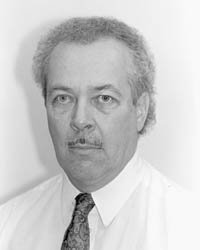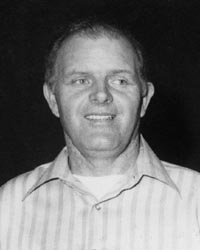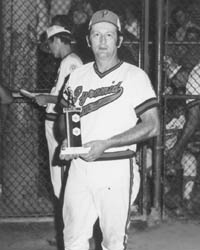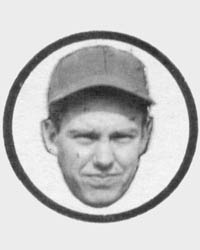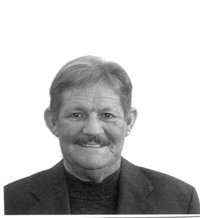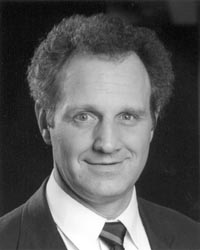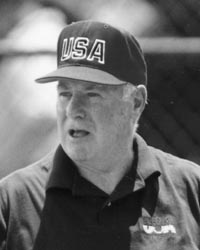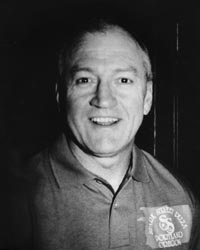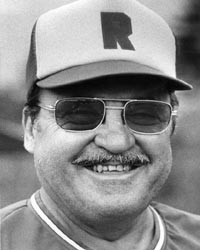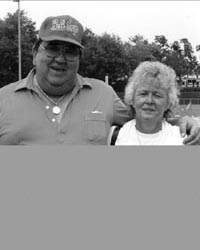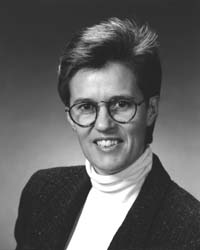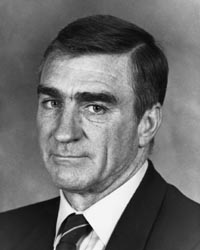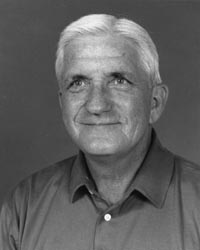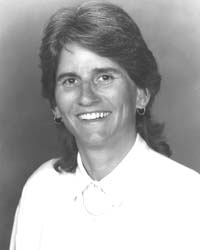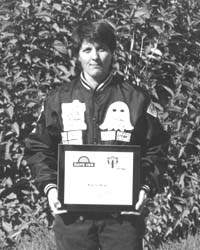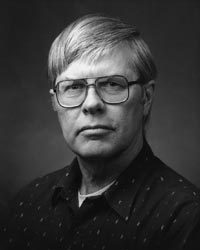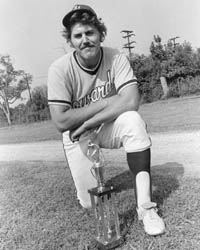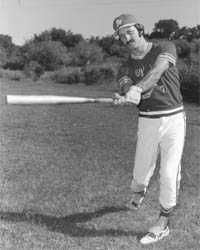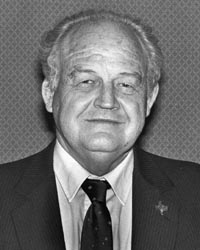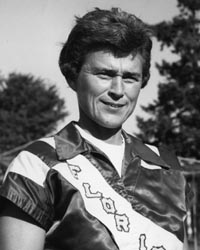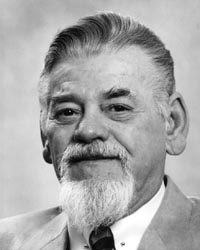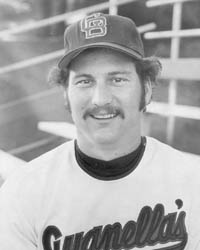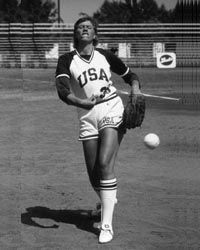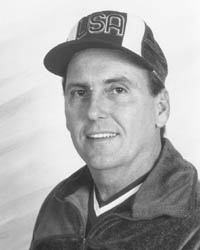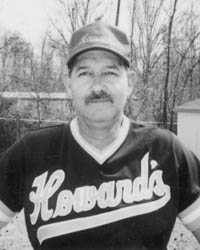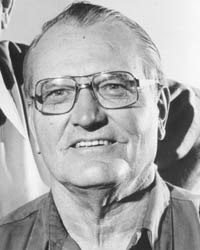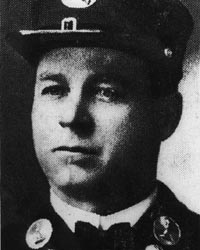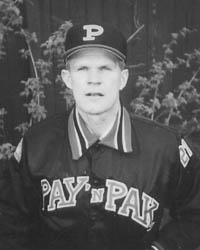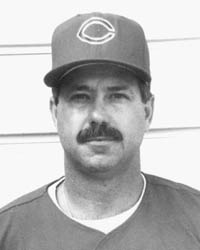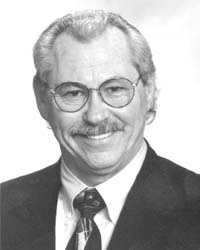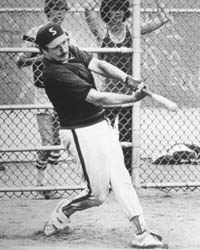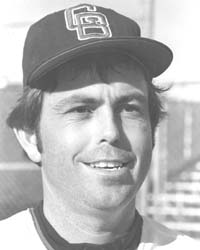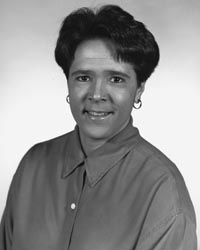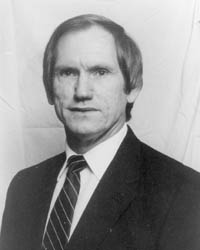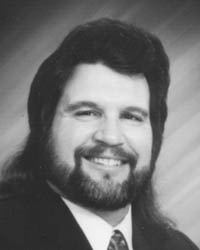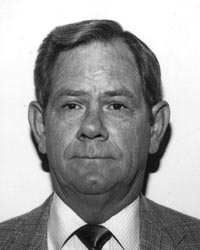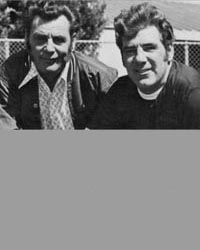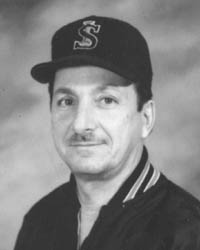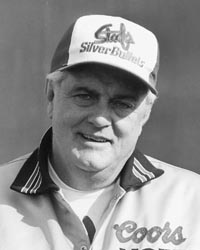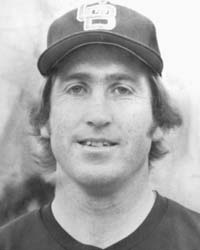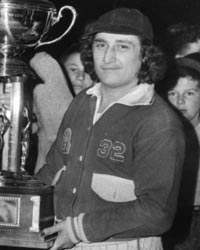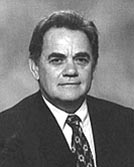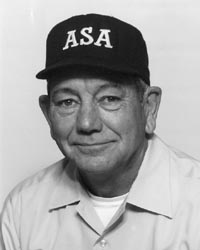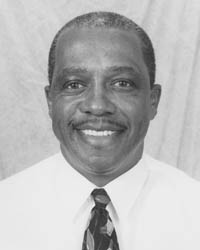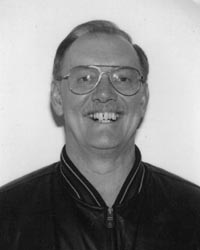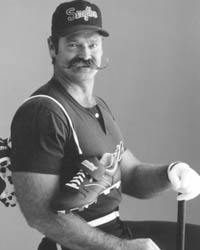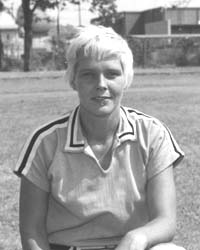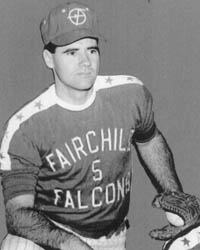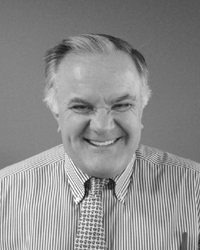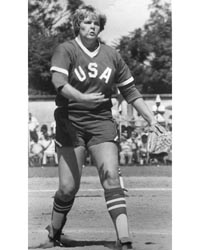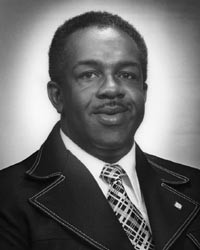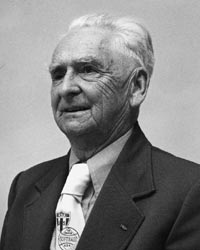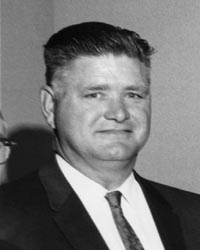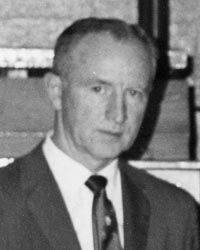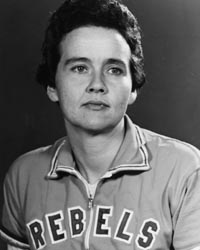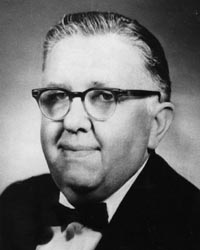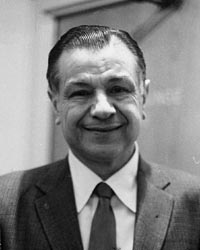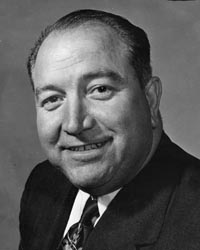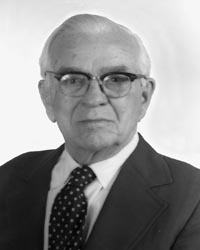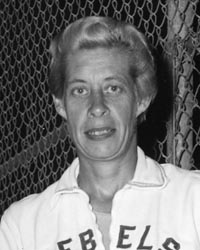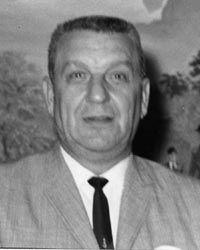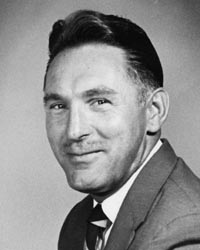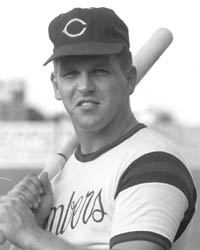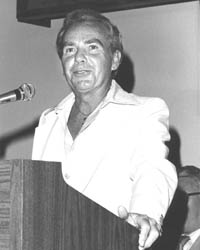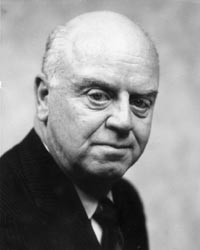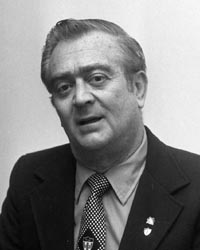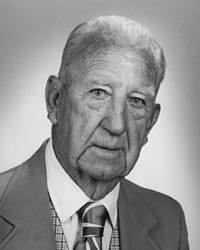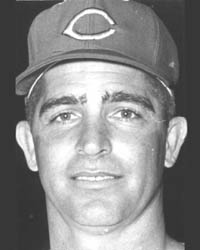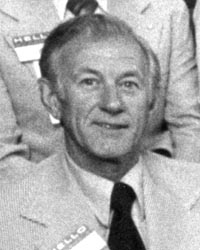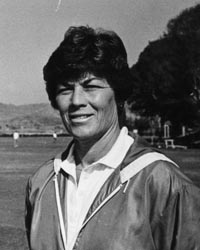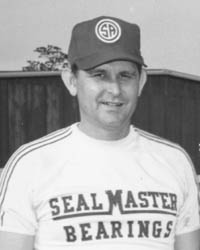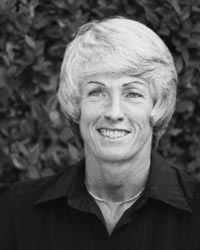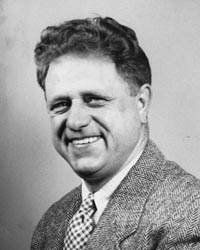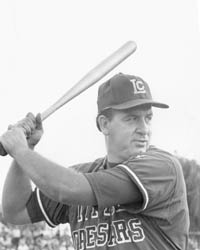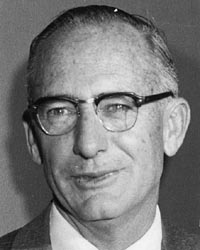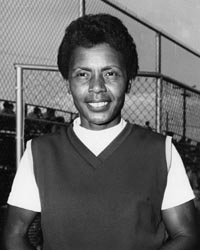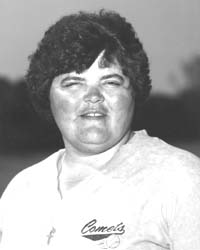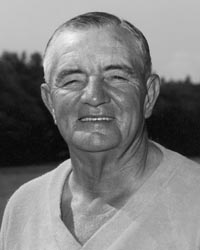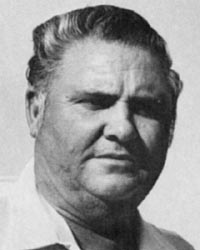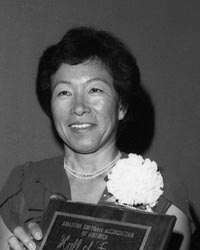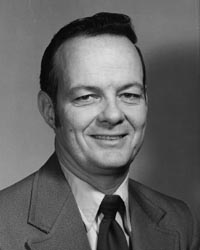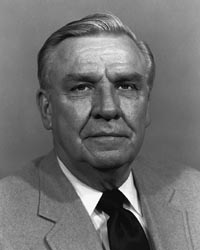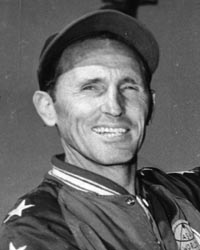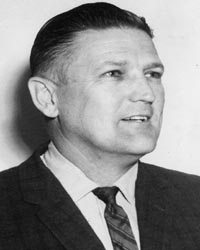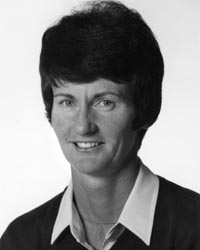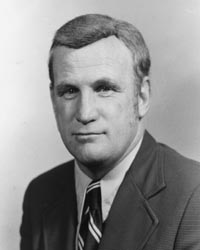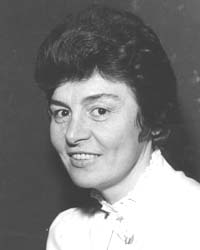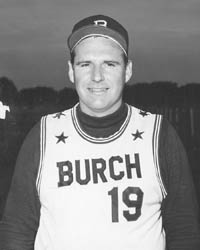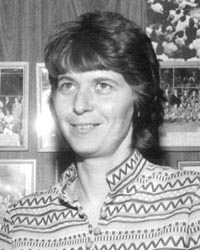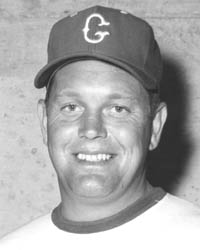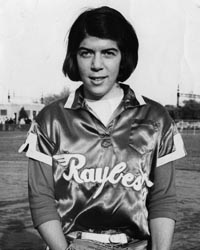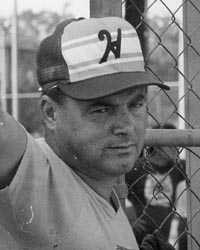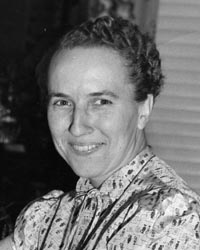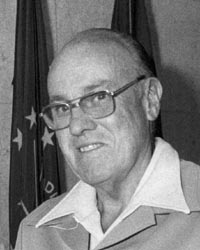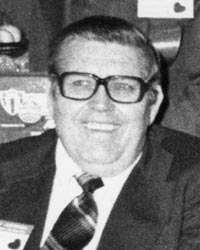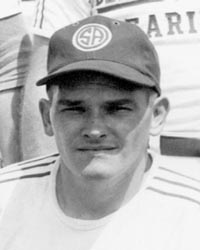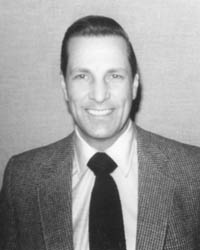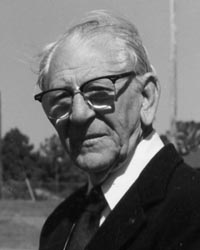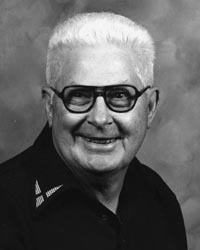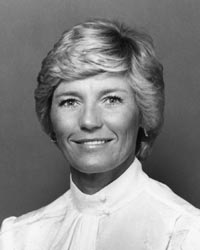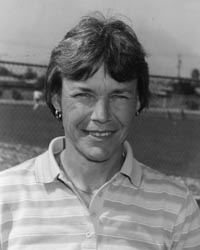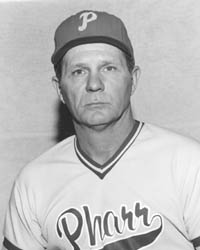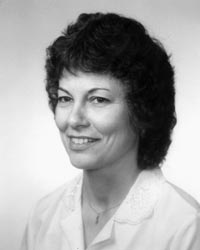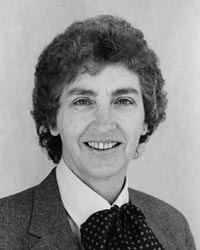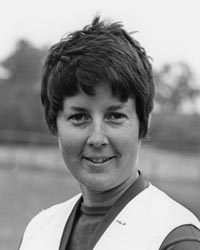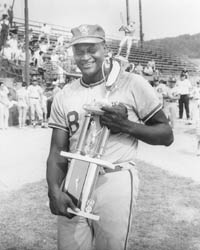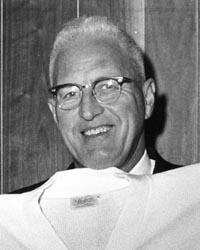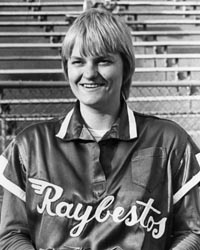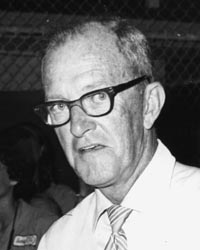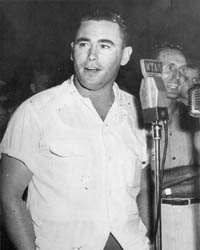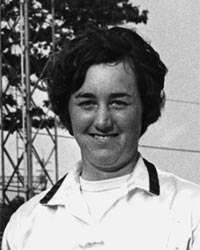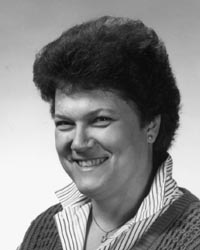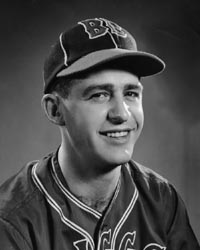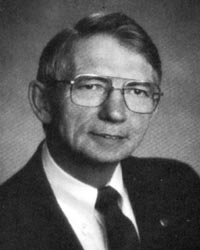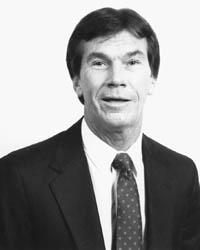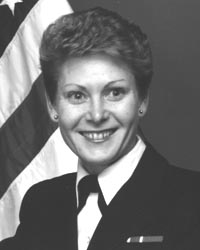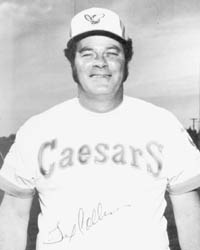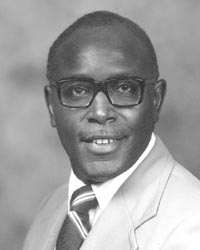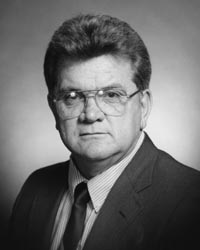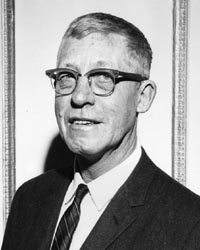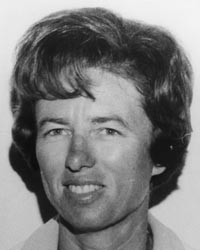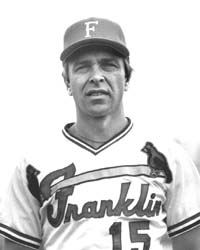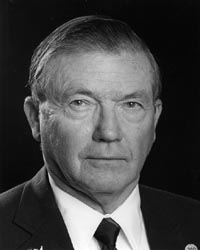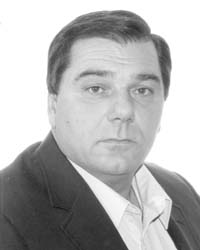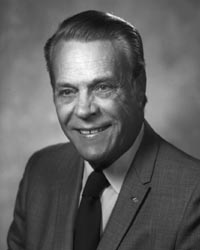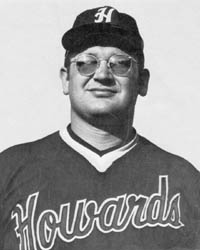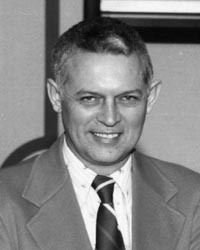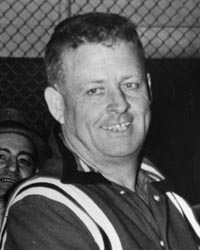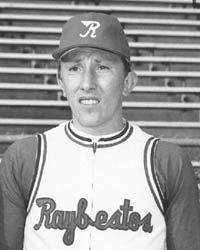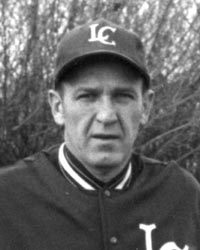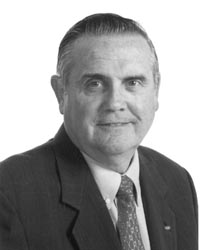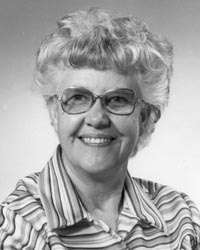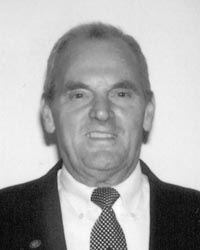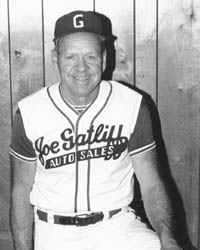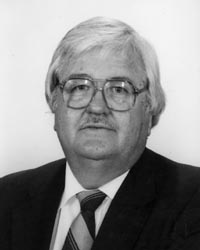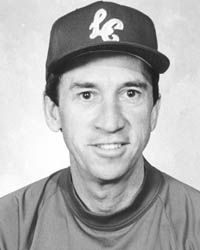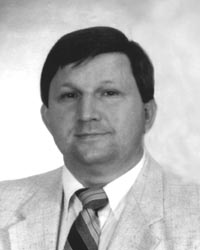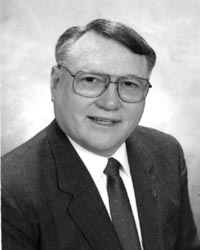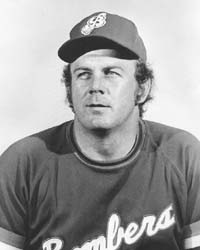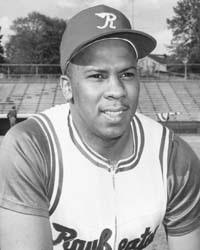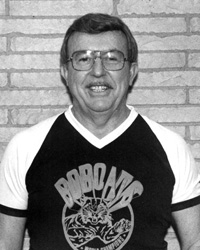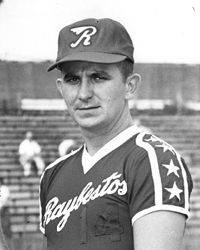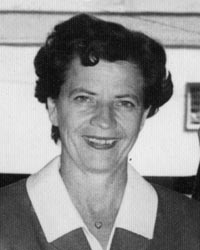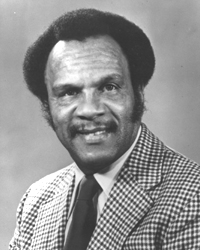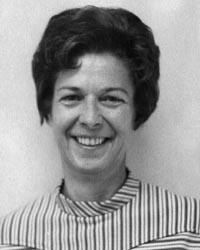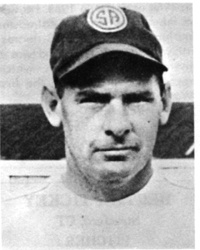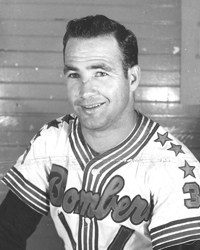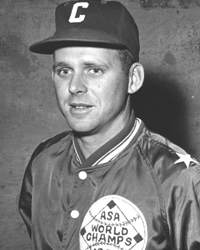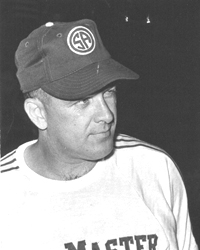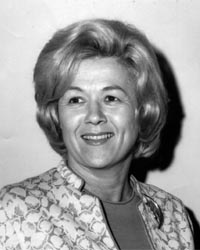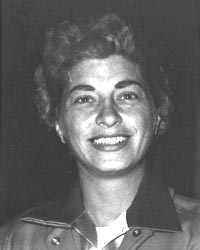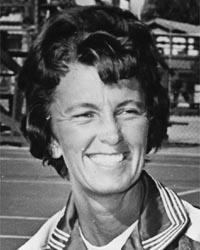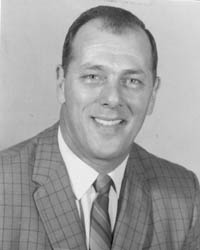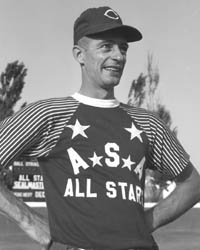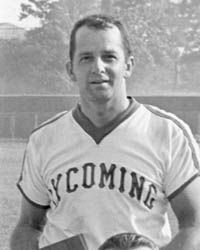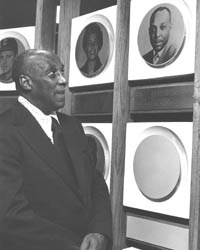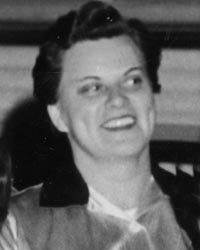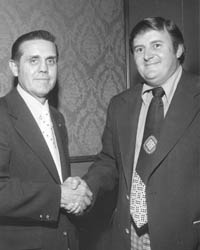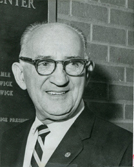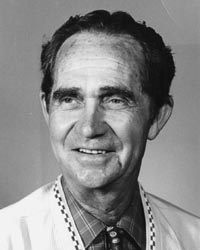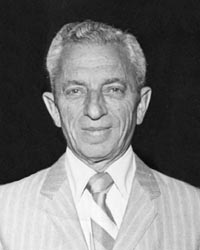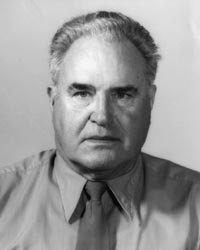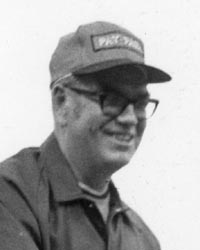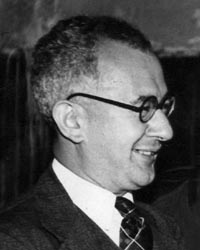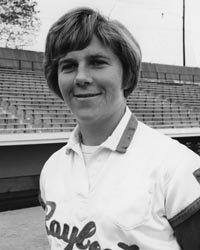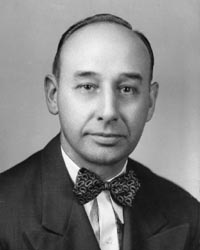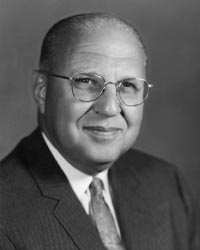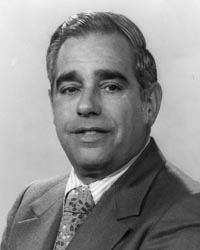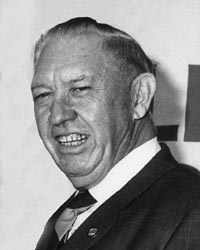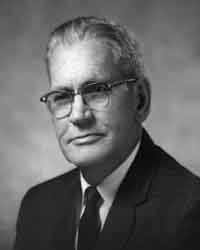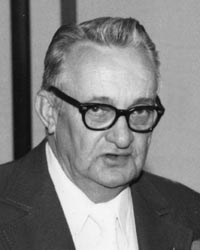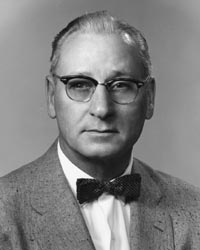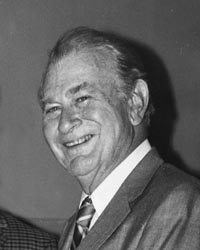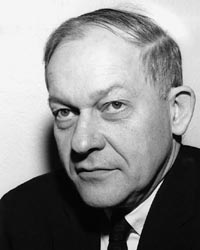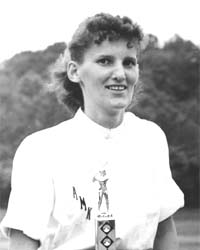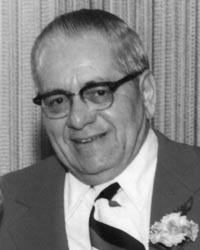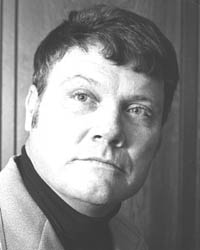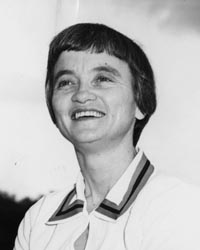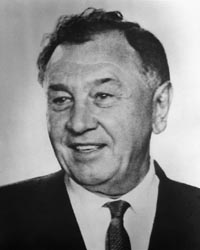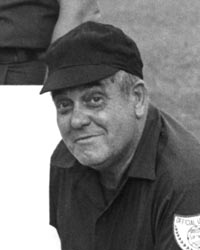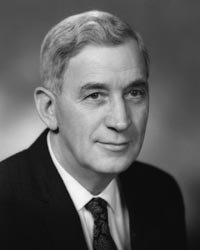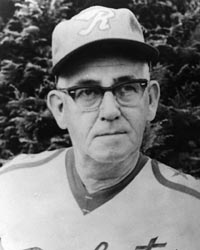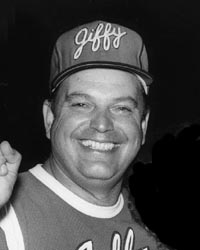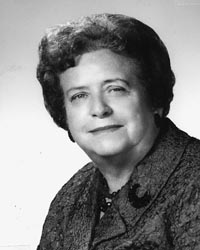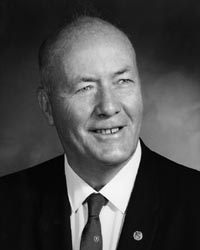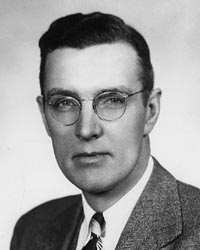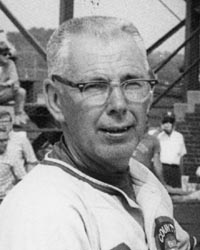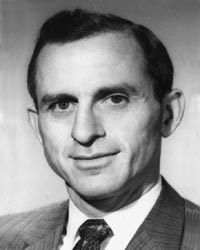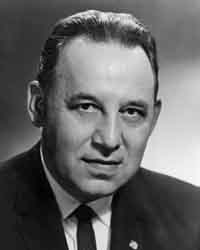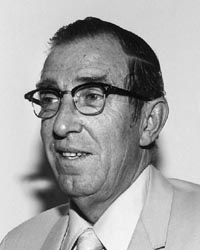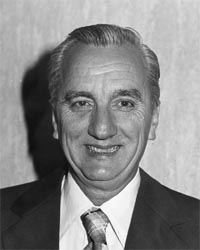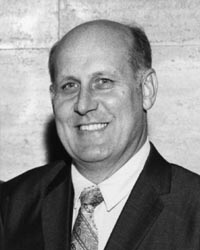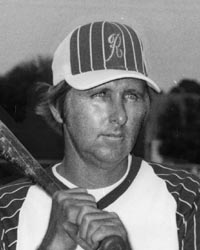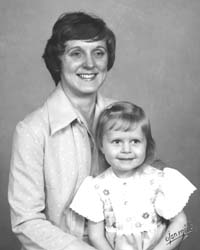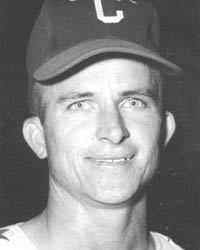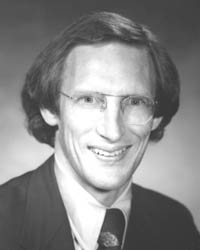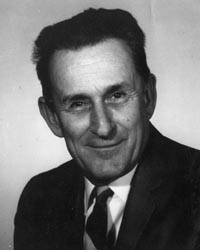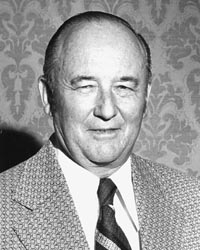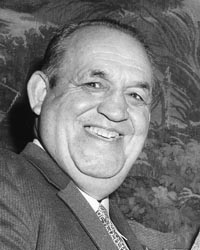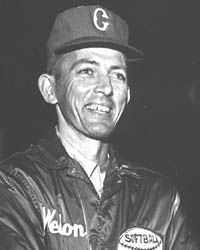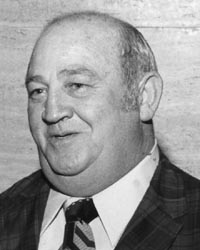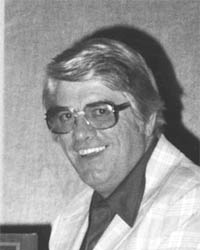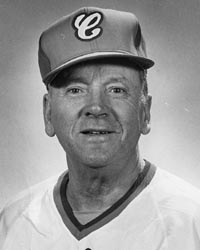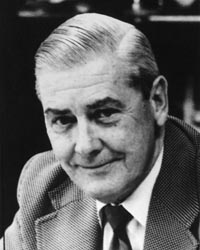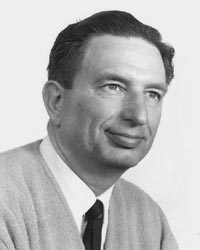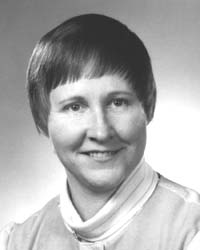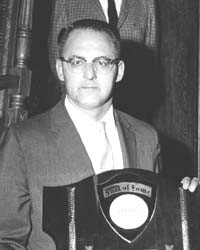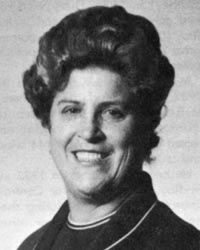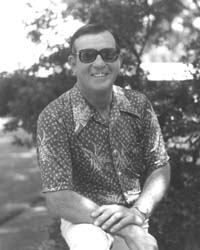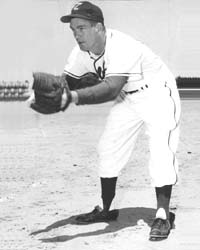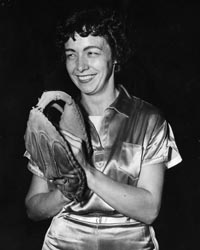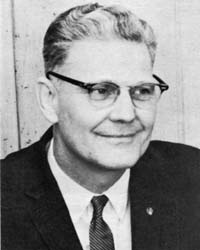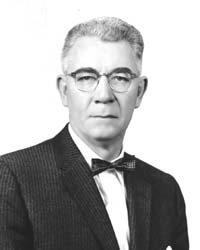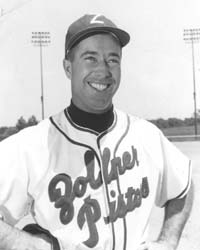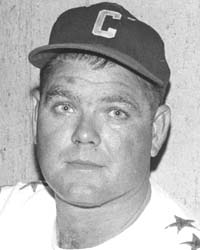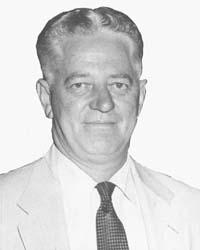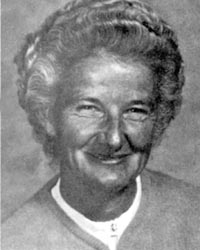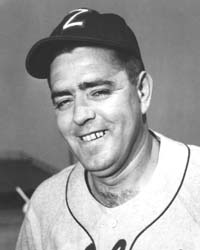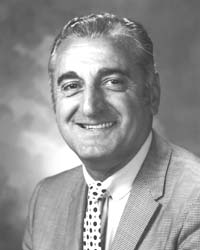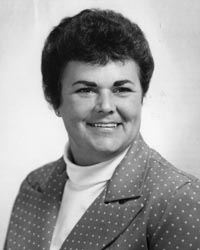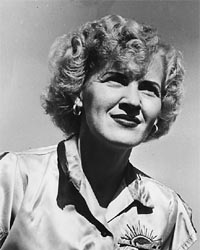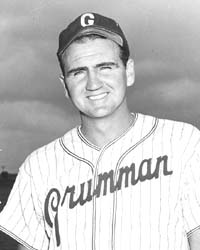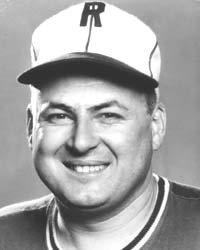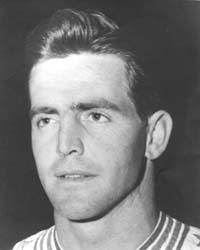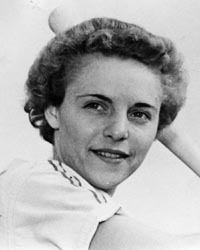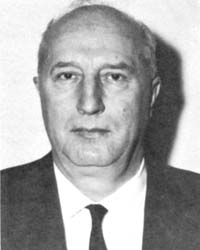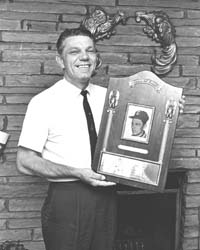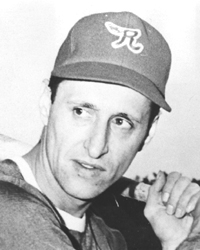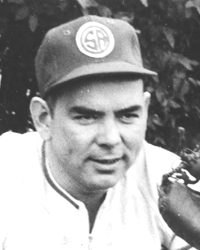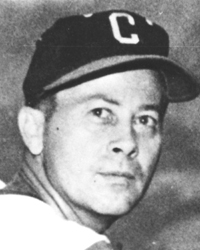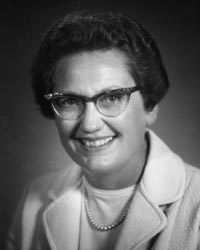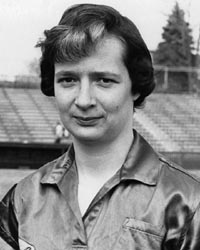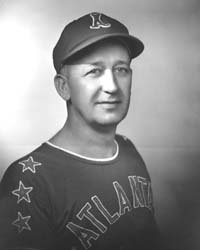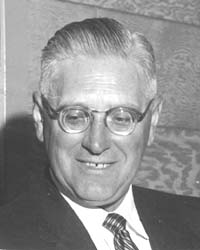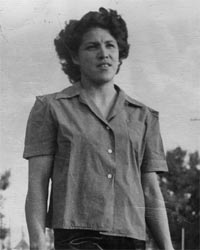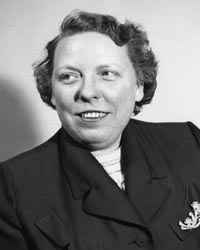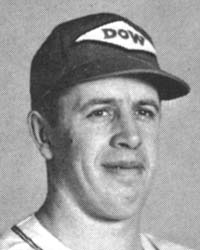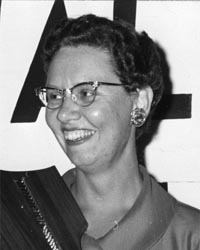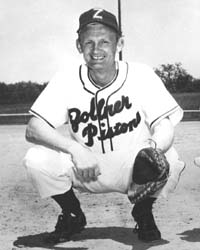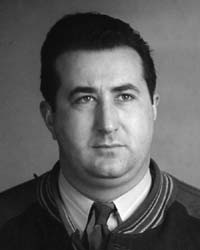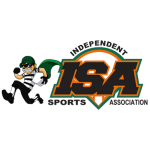The National Softball Hall of Fame is the ultimate goal for any player, coach, umpire or administrator who aspire to greatness in the sport. With over 400 inductees, the National Softball Hall of Fame is among the most difficult sports halls in the nation in which to gain membership.
Take a moment to browse through the Hall of Fame section and learn more about some of the sport’s greatest athletes and their accomplishments. If you get a chance to visit us in person while in Oklahoma City, please observe these hours of operation:
The Hall of Fame and Museum does not charge, but donations are greatly appreciated and accepted. Your donations help keep this history of softball alive through exhibit updates, upkeep and restoration projects.
Link to Video of the National Softball Hall of Fame
The National Softball Hall of Fame and Museum was established in 1957. Once USA Softball moved to Oklahoma City January 1, 1966 after having its offices in Newark, NJ, the decision to establish a Hall of Fame Building in Oklahoma City was made in January of 1965. Groundbreaking ceremonies for the Hall of Fame were held December 19, 1970 in Oklahoma City. The late John Nagy, former Cleveland Metro commissioner, was USA Softball President at that time. Hall of Famers Harold (Shifty) Gears and Carolyn Thome Hart were among those attending the ceremonies.
The National Softball Hall of Fame was officially dedicated May 26, 1973 in Oklahoma City. The building was opened to the public July 1, 1973.
The first of two additions to the National Softball Hall of Fame/USA Softball Headquarters was started July 5, 1976 and completed July 13, 1977 for an additional 4,350 square feet of space. Dedication ceremonies for the expansion were held July 23, 1977. Counting the National Softball Hall of Fame/USA Softball Headquarters and the USA Softball Hall of Fame Complex, there is 28,406 square feet of space.
A second expansion was added July of 1980 for an additional 5,182 square feet of space, with total footage 18,140 square feet of space.
The National Softball Hall of Fame and Museum has over 400 members with two categories of membership: players and non players. Within the player category, there are five categories: Men’s/Women’s Fast Pitch, Men’s/Women’s Slow Pitch and Modified Pitch. Within the non player category, there are five different divisions one can be nominated in: Commissioner, Meritorious Service, Umpire, Managers and Sponsors. A nominee needs 75 percent (nine votes) of the votes cast by the 12 member Hall of Fame Committee to be elected. Annual inductions are held at the USA Softball Annual Meeting.
Through our vast collection of artifacts, the National Softball Hall of Fame and Museum strives to educate the public about softball’s rich history. Your support is critical to these efforts.
The Hall of Fame Donation Fund was established to ensure that the National Softball Hall of Fame has a future and is committed to educating people about the great former players and non players and the role they played in the development of the sport.
Your tax-deductible contribution helps the National Softball Hall of Fame continue its mission of educating, collecting and honoring as well as the preservation of the history of softball, the maintaining of present exhibits and purchase of new exhibits and possible expansion of the Hall of Fame building.
Due to the volume of offers we receive, we cannot accept the donation of an artifact without a completed artifact description form. Please see our Mission Statement and Collections Management Policy to see what types of objects we will and will not accept. Once we have received your form, our staff will evaluate the object’s potential and will be in contact with you as to whether or not we will be able to accept the donation. If your object is chosen, the donated material will be recommended to the Executive Director for consideration. Following the meeting a staff member will contact you regarding the next steps.
![]() Click here for the Donor Questionnaire Form
Click here for the Donor Questionnaire Form
- National Softball Hall of Fame 1950’s
- National Softball Hall of Fame 1960’s
- National Softball Hall of Fame 1970’s
- National Softball Hall of Fame 1980’s
- National Softball Hall of Fame 1990’s
- National Softball Hall of Fame 2000’s
- National Softball Hall of Fame 2010’s
NATIONAL SOFTBALL HALL OF FAME CLASS OF 1990
Abe Baker, Cranston, RI Men’s Fast Pitch – Outfield
Baker was one of the game’s top hitters during a 20-year career (1963-1983) playing for teams in Providence, RI, Worcester and Taunton, MA, Portland, ME, Stratford, CT, Long Island, NY and Poughkeepsie, NY. Baker estimated he hit more than 300 homers during his career. He participated in 13 ASA national championships and shared the batting title in the 1975 national with a .545 batting average. His batting average in 10 of the tourneys was .275. Being inducted into the Hall of Fame in 1990 Baker said was “his greatest thrill in softball” while not winning a national title was his greatest disappointment. He played on teams that finished in the top four five times. Three times (1965, 1966 and 1975) he was named an ASA All-American and was the MVP in the 1966 national tourney when he batted .346 (9-for-26) and drove in eight runs. It was the first time a non pitcher won the MVP award. He also played in the 1967 Men’s All-Star Series. Baker was born October 5, 1937.
Dick Bartel, San Antonio, Texas – Men’s Slow Pitch – Outfield
Outfielder Dick (The Rocket Man) Bartel participated in nine ASA national championships and was a member of three national championship teams, all with Howard’s-Western Steer of Denver, NC (1981, 1983 and 1984). “In the early 80s, he was the best player in the country,” said former Howard’s manager Randy Gorrell. “He’s the player I would want at the plate when you have to win a ball game. One of the most respected players, on and off the field.” Six times Bartel earned ASA All-America honors including 1976, 1980,1981-1984. With Howard’s, he had a .654 batting average, hit 580 home runs and drove in 1,090 runs. The 6-foot-5, 230-pound Bartel started playing slow pitch in 1972 in his hometown of San Antonio, TX before deciding to play for some of the nationally known teams including Howard’s-Western Steer and Campbell’s Carpets of Concord, CA. The two years Bartel played for Campbell’s (1979-1980), the team won a national title (1980) and was a national runner-up. Bartel retired as an active player following the 1985 season.
*Tom Beall, Monticello, Georgia – Men’s Slow Pitch – Outfield
When Tom Beall hit a homer fans would affectionately call it a “Beall ringer.” From 1979-1984, 995 “Beall” ringers were hit by Tom playing for slow pitch powerhouse Howard’s -Western Steer of Denver, NC. Besides the almost 1,000 homers, Tom drove in 2,065 runs and had an aggregate .662 batting average with 1,907 hits in 2,879 at-bats. He was named an All-American five times. He was a second-team choice in 1981, 1982 and 1983 and a first teamer in 1979 and 1980. In the 1980 Major Slow Pitch National Tourney Beall smashed 17 homers to lead all hitters. Howard’s won three national titles during this span, 1981, 1983 and 1984. Tom’s best season with Howard’s was 1982 when he led the team in average (.702), home runs (303), hits (530), runs (507) and at bats (751). Beall was born March 12, 1953. Before joining Howard’s, Beall played for Reed’s Nuts of Pinehurst, GA from 1975-77 and one year for Howard & Carroll, Sherrills Ford, NC. In 1977, he batted .660 with 144 homers. In 1978, he smashed 250 homers second best in the USA and batted .626. Beall was born March 12, 1953 and died on December 24, 2017.
*Ken Clark, Stratford, Connecticut – Men’s Slow Pitch – Pitcher
Ken Clark first wrote his name in the softball history books in 1985 when he became the first industrial slow pitch player elected to the Connecticut ASA Slow Pitch Hall of Fame. The long-time hitting and pitching standout for Sikorsky Aircraft wrote another chapter in 1990 when he became only the third Major industrial player elected to the ASA National Hall of Fame. In his 22-year softball career, Clark played in 10 ASA national championships and earned first-team All-America honors three times, compiling a 31-6 pitching record in national championship play and a lifetime log of 261-56. When discussing his career, Clark downplays his accomplishments in favor of talking about his teammates. “I’m in the Hall of Fame because I played with some great guys on some great teams,” Clark said. A 40-year employee of Sikorsky before retiring in 1992, Clark had a .500 batting average plus hit more than 300 homers before retiring as a player in 1976. He was born July 26, 1932 in Bridgeport, CT and died on December 22, 2014.
*Harry “Coon” Rosen, Chicago, Illinois – Men’s Fast Pitch – Pitcher
When fast pitch fans discuss the outstanding pitchers in the early days of the Amateur Softball Association one name that is mentioned often is Harry (Coon) Rosen. Rosen played in the first ASA National Championship in 1933, hurling J.L. Friedman Jewelers of Chicago, IL to the title by beating Briggs Beautyware of Detroit, MI 5-1. Rosen fanned 16 batters and allowed one hit in handing Briggs its only loss of the season. The Jewelers finished the year 108-11. According to Rosen, he appeared in the national championship every year before retiring after the 1946 season. In the 1933 championship, Rosen said he won eight games, pitched five no hitters and hurled 71 innings, striking out 160 batters. Rosen, who said he hurled 300 no-hitters and 195 perfect games in his legendary career, was featured in a 1935 “Ripley’s Believe It or Not,” for allowing one hit in two games while striking out 37 of 39 batters, yet lost both games, 1-0. Rosen played for teams in Phoenix, AZ, Lettuce Kings, Chicago, IL and Los Angeles, CA. He was born June 25, 1908 in Lincoln, NE, but grew up in Chicago where he played baseball at Turley High School. At the University of Illinois, Rosen starred in baseball and football and in his senior year batted .368 to lead the University to the Big Ten Conference title. In 1999, Rosen was named one of the 100 best athletes in the history of Arizona, finishing 64th. Rosen died on January 4th, 1997 in Sun City, CA at 88.
*Bill Svochak, Detroit, Michigan – Meritorious Service
A 1951 graduate of Wayne State University, Svochak worked 32 years for the Detroit Parks and Recreation Department before retiring in 1979. Svochak served as manager of Dee’s Sports Shop in the Detroit Parks and Recreation Major Industrial Slow Pitch League from 1959-1970. The team competed in eight national tournaments, 1959-1965 and 1969 and compiled 28-16 record. The best finish was runner-up in 1960. Svochak was appointed Metro Detroit commissioner in 1971. Served as Great Lakes Region vice president from 1980-82. In 1982, Metro Detroit was the Number 1 Metro Association in the ASA under Svochak’s leadership. Svochak died on December 24, 1990 at age 72.
*Bert Weeks, Winston-Salem, North Carolina – Commissioner
Weeks served as Director of Recreation in Concord, N.C. and later as Athletic Superintendent in the Department of Recreation in Winston-Salem, retiring in 1985. Weeks also spent much of his adult life supporting and developing opportunities for amateur softball to flourish around the world. He was a member of USA Softball, formerly the Amateur Softball Association (ASA) from 1959 until 2005, traveling the world as an ambassador and organizer of softball events – with USA, he organized clinics in Czech Republic, England, Nigeria, and Zimbabwe. He also spent six years on the Executive Board of the International Softball Federation (ISF). Perhaps his proudest achievement was his role as the first-ever competition manager for women’s softball in the 1996 Olympics in Atlanta, Ga.
Named North Carolina ASA commissioner in 1974 and was the driving force behind establishing the North Carolina ASA Hall of Fame Building and banquet. Served as the competition manager for the softball competition in the 1996 Olympic Games in Atlanta, GA, where softball made its debut. From 1988-89 served as 26th president of the Amateur Softball Association. Served six years as a member of the International Softball Federation and four years as North American vice president. He was the venue coordinator for the 1987 Olympic Festival in Raleigh, NC and was the men’s coordinator for the 1985 U.S. Olympic Festival in Baton Rouge, LA. He was chief of the U.S. delegation for the 1984 Men’s World Fast Pitch Championship in Midland, MI. Served six years as a USOC delegate. Was chairman of the USA men’s and women’s selection committees for the 1991 Pan American Games. Has a B.S. degree in recreation from North Carolina State University (1958). Was born October 17, 1933. Retired as an ASA Commissioner in 2004. Weeks was born on October 17, 1933 in Clinton, N.C and died on January 17, 2022.
NATIONAL SOFTBALL HALL OF FAME CLASS OF 1991
*Merle O. Butler, Edmond, Oklahoma – Umpire
Named first ASA full-time National Director of Umpires in 1981, Butler was instrumental in developing the ASA umpire program into one of the finest amateur officiating organizations in the world. He co-authored the “ILLUSTRATED SOFTBALL RULE BOOK” in 1981 and “TAKE CHARGE SOFTBALL UMPIRING,” printed by Referee Magazine in 1992; wrote the script and has directed three ASA training films, produced 28 umpire training videos, and prepared transparencies for umpire rule and mechanics training. He has been a registered umpire since 1961 and previously was Region 14 and Metro Santa Clara, CA umpire-in-chief. He umpired in two National and three World Championships, served as UIC for eight national championships and three Sports Festivals. While national director, the National Indicator Fraternity, the Umpire Medals program, the National Umpire School program, and the Umpire Uniform program were instigated. Butler gave clinics in 41 different states. Butler also serves as the ISF Director of Umpires and has furthered the development of umpiring internationally through clinics in 26 countries and in each of the six international regions. He had served as UIC for 23 World Championships, the 1996 Olympics, 2000 Olympics and the 2004 Olympics. He was inducted into the ISF Hall of Fame in 1993. Butler was born on November 28, 1935 and died on January 6, 2008. He was 72.
*Eddie King, St. Petersburg, Florida – Men’s Fast Pitch – Pitcher
Eddie King is the winningest pitcher in the history of the Clearwater, FL Bombers with 411 wins in 16 years. His overall pitching record was 544-66. King started his softball career in 1952 with the Miami Industrial Flyers before serving in the Armed Forces for two years. After being discharged, he joined the Bombers in 1955, compiling a 27-3 record. Five times he earned ASA All-America honors, 1963, 1966, 1967, 1968 and 1955. He had an 18-7 record in national championship play with three no-hitters and was a member of seven national championship teams and five runners-up. Of all his accomplishments, the one that King is remembered most for is pitching 25 innings of a 31-inning game in 1963 against the Portland, OR McKee Ramblers. Relieving starter Weldon Haney in the seventh inning, King struck out 25 batters and allowed eight hits during the 25 innings before Clearwater pushed across a run in the 31st inning for a 4-3 win. The game took seven hours and 41 minutes. A graduate of the University of Florida and a native of St. Petersburg, FL, King worked 28 years for General Hospital before retiring in 1987. King died April 28, 1991 at Grady Memorial Hospital in Delaware, OH where he was scheduled to undergo intestinal surgery but he developed internal bleeding and died.
*Sam Lombardo, Detroit, Michigan – Men’s Fast Pitch – Outfield
When the Fort Wayne, IN Zollner Pistons played, the opposition knew Piston outfielder Sam Lombardo would drive them up a tree with his aggressive, flamboyant style. That’s the way Lombardo played, and teams knew what to expect. They expected Lombardo to lay down a bunt or two. Lombardo perfected the “chop” bunt and was someone who would make an easy catch look difficult. He also would make a catch at his shoe tops, tumble and come up with the ball. Lombardo started his career with Detroit’s Briggs Beautyware and helped the team win the 1937 ASA national title. Two years later, Lombardo batted .389 for Briggs. In 1945 he joined the Pistons and remained with the team until it disbanded following the 1954 season. In 1947, Sam collected 55 hits in 54 games to lead the National Fastball League in batting with a .343 batting average. In 1948, his average slipped to .251, but he batted .311 in 1949 and .394 in 1951 in the National Industrial Fastball League to lead the league in batting. He earned all-league honors four times, 1946-1949. When the men’s pitching distance was increased from 43 feet to 46 feet in 1950, Lombardo regularly batted .300 or higher, hitting .339 overall in 1951 to lead the team, .302 in 1952 and .297 in 1954. After the Pistons disbanded, Lombardo went back to his hometown of Detroit, MI to play for Burch Gage Tool and Die and twice was named an All-American (1955 and 1961). In 1971, Lombardo joined Nothdurft Tool and Manufacturing as a player-coach before retiring in 1977. Sam died on January 9, 2013 at the age of 92.
Kay Purves, Lansing, Michigan – Meritorious Service
During 27-year career was a manager and player-manager in women’s major fast pitch. She was a player-manager from 1963-1980 for the Lansing, MI Laurels and managed the team from 1981-1987. In 1979 and 1983 was a member of the coaching staff of the Pan American Team. In 1980-1982 was ASA delegate to the United States Olympic Committee. Nine of her former players are or have been head softball coaches at major colleges and universities. The Laurels competed in eight ASA national championships and twice Kay (1974 and 1975) earned All-America honors as a catcher. She also played in 21 Michigan state championships. In 1976, she was inducted into the Greater Lansing Sports Hall of Fame. In 1984, she was elected to the Michigan ASA Hall of Fame. Two years later, she received the Richard Pollak Memorial Award presented by the J. deBeer Company as the Sports Woman of the Year for her contributions to women’s softball. She also umpired for 15 years and has given numerous clinics throughout Michigan. She is a graduate of the St. Lawrence School of Nursing and was a surgical nurse for many years.
Marilyn Rau, Phoenix, Arizona – Women’s Fast Pitch – Catcher
One of only five catchers elected to the National Softball Hall of Fame, Marilyn Rau had an eye-opening two-decade career before retiring after the 1986 season. Rau earned ASA All-America honors 11 times and was known for her clutch hitting as well as for her superb handling of pitchers. She got her start in competitive softball as an eighth grader with the Dudettes, a farm team of the legendary Phoenix AZ Ramblers. When the Ramblers disbanded in 1966, Rau was among several players who formed the Sun City, AZ Saints. Rau started out at shortstop with the Saints and eventually moved to behind the plate where she would stay the remainder of her career. With Rau, the Saints participated in 19 ASA national championships, compiling a record of 59 wins and 26 losses for a winning percentage of .694. The Saints finished no lower than fourth place 11 times. The highlight of Rau’s career? “Without a doubt, it was winning the national championship in 1979,” said Rau, who has bachelor’s and Master’s degrees from Arizona State University. Rau was named the MVP in the 1979 national as well as batting .500. Earlier that year, she helped the USA win the gold medal in the Pan American Games in San Juan, Puerto Rico. She capped the year by winning Arizona’s Athlete of the Year Award. In 1978, Rau helped the Raybestos Brakettes of Stratford, CT, representing the USA, win the ISF World Championship in El Salvador, batting .350.
Marlys Taber, Paw Paw, Illinois – Women’s Fast Pitch – Shortstop
Marlys Taber’s major fast pitch career started at 14 years-old in 1958 for the Earlville Victorians of Earlville, IL and concluded in 1983 when she was forced to retire because of acute tendonitis resulting from a shoulder injury. Five times Taber was selected an ASA All-American. She was a first-team choice in 1978 and 1980 and a second teamer in 1965 (.385 batting average), 1966 (.250 BA) and 1976 (.238 BA). Besides being an All-American, Taber played in three ASA Women’s Major Fast Pitch All-Star Series, 1966, 1969 and 1977, and batted .389 in the 1966 Series to lead all hitters. In 1979, she received an invitation to try out for the 1979 USA Pan American team. After her playing career, Taber taught physical education plus coached basketball, soccer, volleyball, and golf. She retired in 1995 and finds herself “extremely busy golfing, making craft projects and participating in community activities,” living in Dows, IA. Taber is a 1966 graduate of Illinois State University and was elected to the university’s hall of fame in 1982. In 1989, she was elected to the Greater Peoria Sports Hall of Fame. She calls her election to the ASA Softball Hall of Fame in 1991 “the greatest thrill of her career.” She was born March 4, 1944.
*Franklin Taylor III, Richmond, Virginia – Commissioner
Was appointed Central Virginia ASA commissioner in 1969 and has increased membership from 200 teams to more than 2,500 teams. Has written numerous pieces of legislation, which have been adopted by the ASA, including realignment of the ASA into 15 regions, creation of at-large player rep, creation of national and area tournaments and creation of the Class B and C national tournaments. Served as ASA president from 1978-1979. Was first regional vice president of the Central Atlantic Region. Has held annually since 1969 Richmond Round Robin Tournament. This tournament annually draws between 300-400 teams. Elected ISF North American vice-president in 1981 and served for six years. Was elected in November 2001 a second time as ASA President. Retired as a commissioner after 35 years’ service following the 2003 annual meeting in Orlando, FL. Frank died on May 15, 2012.
NATIONAL SOFTBALL HALL OF FAME CLASS OF 1992
*Louie Del Mastro, Pittsburgh, Pittsburgh – Men’s Slow Pitch – Pitcher
To say Louie Del Mastro had an impact on the rise of slow pitch softball in the 1950s and 1960s is an understatement. If anything, Del Mastro was one of the people leading the way to establish slow pitch. And Del Mastro, among others, did just that. Del Mastro got recognition for slow pitch, his team, Skip Hogan A.C., and himself with his colorful antics. He was a master showman. “He was one fantastic player who would do anything to get you off-guard to win a ball game,” said Hall of Famer Steve Loya, a former slow pitch great from Cleveland, OH. Known as “Nozza,” by his fans, Del Mastro would strut on the mound, talking excessively to teammates, opponents, and umpires. When fans heard that Del Mastro was playing there was a mass migration to that field. Antics aside, Del Mastro backed up his talking with his skillful pitching to keep hitters off-balance and line-drive hitting. He played in seven ASA national championships, compiling a 32-5 pitching record, and was named a first-team All-America four times: 1962, 1964, 1965 and 1967. He allowed less than 6.5 runs per game in national championship play in leading teams to four national titles. In 1965 he was named national tourney MVP. Del Mastro was born September 9, 1939 and died on October 31, 2011.
*Carolyn Fitzwater, Clackamas, Oregon – Women’s Fast Pitch – Second Base
Softball teams must be strong up the middle and the Erv Lind Florists, one of the top teams in the Northwest for years, had one of the top defensive players forming their inner defense, Carolyn Fitzwater. Fitzwater began with the Florist junior team in 1949 and made it to the “big” team a year later. From 1950 until the team disbanded in 1965, Fitzwater was an integral part of the Florists. She spent one year with the Fresno Rockets (1966) before returning to Portland to conclude her career from 1969 to 1973. She did not play softball in 1967-68 and 1971 before retiring in 1974. Fitzwater was named an All-American four times during her career: 1959, 1962, 1963 and 1964 and participated in 14 ASA national championships. Despite batting only .188 in the 1963 Women’s Major Fast Pitch National Championship, Fitzwater starred defensively, handling 36 chances without an error, including 20 assists. In 1964, she batted .462 in the national tourney to lead the Florists to the national title. It was one that she fondly recalls. “What stands out about 1964 was that it was such a great team effort. No great stars, just a total team effort,” said Fitzwater, who has B.S. and M.S. degrees from Oregon State University. Fitzwater was born October 10, 1935. Carolyn died on May 3, 2014.
Fred and Carl Nothdurft, Detroit, Michigan – Sponsor
Twin brothers Fred and Carl Nothdurft first sponsored men’s fast pitch teams, then fast pitch teams. The fast pitch teams won 936 games and lost 125. The team won five East Central regional crowns and competed in six ASA fast pitch nationals. Best finish was a second in the 1970 Men’s Major Fast Pitch National Championship. They started sponsoring slow pitch in 1988 and won three consecutive ASA 35-and-over national titles, 1988, 1989 and 1990, and a men’s 45-over slow pitch title in 1991.
Jerry Pendergast, Miami, Florida – Sponsor
Started his softball career in 1964 and by 1969 his team had finished 23rd in the Men’s Open National Slow Pitch Championship. In 1974, his team finished second in the Open Division after 21st in 1976 and fourth in 1977. Moving up to the Super Division, Jerry’s won the 1982 Super National with a 7-1 record. It also qualified the team to play in the first ASA-Winston Slow Pitch All-Star Series in 1983. In 1983, Jerry’s finished third in the Super national and were runners-up in 1984. In 1985, just prior to the start of the season, Pendergast announced he was no longer sponsoring a team.
Henry D. Pollard, Highland Springs, Virginia – Umpire
One of the premier slow pitch umpires in the sport’s history, Pollard has been the ASA deputy director of umpires since 1989. He served as Metro Richmond/Central Virginia UIC from 1973-1989. Was UIC of the Central Atlantic Region from1977-1989. Has been a member of the National Umpire staff since 1977. Was ISF certified in 1983. In 1986, was selected to the National Indicator Fraternity. In 1988, was inducted into the Central Virginia ASA Hall of Fame. In 1991, received the Wilson National Award of Excellence. That same year also received the Tom Mason Central Atlantic Region Award. Is outstanding clinician. In 2004, Pollard was named Central Virginia ASA Commissioner. Henry retired as the Central Virginia Commissioner in 2020.
*Elmer Rohrs, Hamler, Ohio – Men’s Fast Pitch – Pitcher
Coached by his dad and raised on a farm, Elmer (Farmer) Rohrs was one of the fastest sling-shot hurlers in fast pitch softball in the 1940s and 1950s hurling for the renowned Fort Wayne, IN Zollner Pistons. Rohrs had a good sense of humor and was often the victim of a practical joke. On the pitching mound, however, he was all business and between 1947-1954, he won more than 200 games and lost only 28 for the Pistons. Before joining the Pistons, Rohrs pitched for Napoleon’s Rausch Roofers and 7-Up as well as Ferguson State Auditors of Columbus, OH. In 1947, Rohrs won 28 of 30 games including two in the ASA National Championship as the Pistons went undefeated in six games to win their third consecutive title. Rohrs no-hit Cleveland 5-0 and pitched five and two-third innings of scoreless relief against Hanford, CA. He was 22-7 in 1949. In 1949, Rohrs went 29-3 with 276 strikeouts in 228 2/3 innings. He allowed 14 runs and walked only 28. Twenty-three of his wins were in a row. In 1950, Rohrs compiled a 34-6 record with an ERA of 1.14, followed by a 23-0 record in 1951 with 254 strikeouts in 175 1/3 innings. In his first six years with the Pistons, he fanned 1,875 batters in 1,282 innings. In 1953, a year before the Pistons disbanded, Rohrs compiled a 9-2 record in the National Industrial Fastball League, striking out 75 batters in 81 2/3 innings. Rohrs died in 1990 at age 65.
Diane Schumacher, West Springfield, Massachusetts – Women’s Fast Pitch – First Base
Adapt at fielding and hitting, Diane “Schuie” Schumacher compiled a lifetime batting average of .329 during her career (1976-1986) with the Raybestos Brakettes of Stratford, CT. Diane led the team in batting five times as the Brakettes won eight ASA national championships (1976, 1977, 1978, 1980, 1982, 1983, 1984 and 1985) and one International Softball Federation world championship (1978). Seven times an ASA All-American, Diane earned first-team honors four times in 1976, 1977, 1978 and 1984. In 1982 and 1983 she was a second-team choice and was a third team selection in 1985. In the 1978 ASA nationals, she batted .400 to lead all hitters. When needed, she also pitched and compiled a 55-16 record with an ERA of 1.01. Twice she was named to the USA Pan American team (1979 and 1983) and batted .333 and .387 in those events as the USA captured a gold medal and a silver in the latter. She also participated in six U.S. Olympic Festivals. A native of West Springfield, MA, Schumacher was named the Outstanding Alumni of Springfield College in 1985 for her service to softball. In 1987, she coached the Holland team in international competition, including the 1990 World Championship in Normal, IL. In 1992, she was elected to the Springfield College Hall of Fame and the Connecticut ASA Fast Pitch Hall of Fame. In 1993, she was the first former American player elected to the International Softball Federation Hall of Fame. In 2001, was elected to the Cathedral High School Hall of Fame in Springfield, MA.
*L.R. “Tarz” Timm, Jamestown, North Dakota – Umpire
Named North Dakota State UIC in 1982 after serving as deputy UIC from 1974-1981. Umpired in six ASA nationals. Was UIC for four ASA nationals and coordinator for two others. Was coordinator for ISF Junior World Tournament in 1985. Served as UIC for 21 state tournaments. Attended eight UIC Clinics in Oklahoma City and two National Umpire Schools. Coordinated three National Umpire Schools and assisted five other National Umpire Schools. Was inducted into North Dakota Hall of Fame in 1987. Helped North Dakota set up state school modeled after national school. North Dakota was first state to do this. Was named Umpire of the Year by the All-American Umpire School in 1990. Retired from U.S. Postal Service in 1983 after 23 1/2 years’ service. Timm died on December 21, 2001. He was born October 14, 1922.
Paul Tomasovich, Pittsburgh, Pennsylvania – Men’s Slow Pitch – Third Base
In an era before the “live” bats and balls, Tomasovich averaged more than 100 RBI and more than 40 homers a season in leading Pittsburgh slow pitch teams to national stardom during a career that started in 1956 and ended in 1980.Playing in seven national championships, Tomasovich helped Skip Hogan A.C. and Jim’s Sports Shop win four national titles-1962, 1964, 1965 and 1967.Five times the 6-foot-2, 210-pound Tomasovich won All-America honors: at shortstop in 1960, in center field in 1962 and 1963, at third base in 1964 and in the infield in 1965. In the 1964 national, Tomasovich also won the MVP award. In the 1965 tourney, he shared the home run trophy with four other players, all hitting five each. In the 1962 national championship, Tomasovich batted .667 (12-for-18) and increased his average to .708 in the 1964 national tourney followed by a .471 average in 1966 and a .517 average in 1967. (15-for-29). His teams had a 38-7 won-loss record in ASA national championships and had a second place in 1963, a fifth in 1960 and a 16th place in 1966. Known for hitting some tape-measure homers and outstanding defense, Tomasovich says he never had a natural position. “It never really mattered to me where I played. If I could move around to help the team, that was fine. I’d move to a new position and things just always seemed to happen to make me look like a big shot.” Tomasovich was born December 14, 1933.
NATIONAL SOFTBALL HALL OF FAME CLASS OF 1993
*Don Arndt, Sherrills Ford, North Carolina – Men’s Slow Pitch – Player
When Don Arndt hit a home run he did it in a manner typical of the almost 7,000 homers he hit during his more than three decade career. He made it look easy. While Arndt’s fluid, graceful, almost effortless swing remained the same, slow pitch underwent a transformation during his career. Though it all, though, as players switched teams at the drop of a hat, Arndt remained steadfast to his team, Howard’s Furniture-Western Steer of Denver, NC. Arndt had one of the great careers of slow pitch. The highlights include: 13 times an ASA All-American, MVP of the 1972 Slow Pitch National Tourney, home run leader in the 1964 Men’s Open Slow National; a member of five national championship teams and outstanding pitcher in the 1983 Super Slow Pitch National Championship. From 1970-1988, the 6-foot-5 inch Arndt compiled an aggregate .628 batting average, hitting 3,330 homers with 6,166 hits in 9,821 at-bats. The most homers he smashed in a season was 309 in 1985 when he was 50 years old playing in 185 of the team’s 201 games. Arndt was born April 14, 1935 and died September 28, 2006.
*Dan Blair, Lowell, North Carolina – Umpire
Was appointed to National Umpire staff in 1976 when it was expanded to 15. Started umpiring in 1954 while in the Air Force and umpired his first national tourney in 1964. Has served as the UIC at more than 19 nationals and also instructed at the ASA Umpire Schools. Three times he has given clinics in Europe. In 1977, officiated in the first North American Slow Pitch Championship and in 1987 in the first ISF Slow Pitch World Championship. Retired from softball after ASA annual meeting in Winston-Salem, North Carolina in 2001. Served two terms as the mayor of Lowell, NC. Dan died on December 12, 2020 at the age of 89.
“He began umpiring in 1954 while in the Air Force and continued for the next 60 years. Even into his 80s, he umpired 2-3 games a night through the Boone Rec Dept. Dan served as NC Umpire in Chief and as Regional Umpire in Chief for the Southeastern US for 25 years. He then served on the National Staff for 15 years as a National Deputy Umpire in Chief. Throughout his career, Dan instructed umpire clinics all over the US and conducted clinics three times in Europe. As a result of his many years of hard work with ASA Softball, He received numerous awards. Dan was inducted into the NCASA Softball Hall of Fame in Burlington, NC in 1986, inducted into the ASA National Softball of Fame in Oklahoma City in 1993 and inducted into the Tennessee ASA Hall of Fame in 2015. He served as Umpire Coordinator for the 1999 Special Olympics World Games. A highlight of his career was serving as Umpire Coordinator for the 1996 Olympic Games in Atlanta.”
Jim “Sonny” Carman, West Babylon, New York – Meritorious Service
Had a varied career as a player, umpire, deputy commissioner and as the Metro Long Island commissioner. Was appointed Metro Commissioner in 1972 after serving as deputy commissioner from 1967-1971. As Metro commissioner he increased registrations to more than 2,700 teams and received 10 ASA membership awards. He started the Metro Long Island Hall of Fame in 1976 and served as its chairman. Umpired in two ASA nationals, 1969 Women’s Major Slow Pitch and 1970 Men’s Major Industrial Slow Pitch, and four regionals. Served as Mid-Atlantic vice president three times, 1980, 1981 and 1983. As a player he compiled a pitching record of 890 wins and 187 defeats from 1940-1964. Retired, he lives in Palm Harbor, Florida with his wife, Doris. He is a graduate of Hofstra University and has a Master’s degree in elementary education.
Eddie Finnegan, Stratford, Connecticut – Men’s Slow Pitch – Shortstop
Eddie Finnegan didn’t figure he would play slow pitch three decades much less in more than 4,500 games. If anything, Finnegan figured he would make his name on a baseball diamond throwing strikes from the pitcher’s mound and not from shortstop or third base. After all Finnegan had pitched Stratford, Connecticut – High School to the 1959 Connecticut state title. But, after a couple of major league tryouts, Finnegan realized, “I just wasn’t good enough.” He continued to play baseball as well as softball. Eventually softball became his game of choice. Finnegan had a .617 lifetime batting average and participated in 19 ASA national championships. Twice he was a member of a national championship team, 1968 and 1969 , and twice was the MVP in the Men’s Major Industrial National Tourney, 1968 and 1971. He was born September 14, 1941. The biggest thrills of Finnegan’s career were winning the 1968 national title, being named MVP and being elected to the National Softball Hall of Fame. Talking about the 1968 national championship, Finnegan said, “We came out of the loser’s bracket on the final day. Those were two of the best games I’ve ever played in.”
*Elliott Hawke, Kansas City, Missouri – Commissioner
Took over as Metro Kansas City commissioner in 1973 and increased team membership from 395 teams to more than 3,400. Under his leadership, Metro Kansas City hosted 10 ASA nationals, including eight JO tournaments and 11 Major and Class A Regionals. He was the ASA rep at 19 nationals and in 1981 was the men’s coordinator at the U.S. Olympic Festival in Syracuse, NY. Served as Mid-American Region vice-president five terms. Was chairman of the ASA JO Awards Committee for nine years and was ASA’s representative to SODA for 10 years. Passed away June 9, 1993. He was born September 9, 1936.
*Steve Loya, Cleveland, Ohio – Men’s Slow Pitch – Catcher
The late Steve Loya, a four-time All-America, played in 11 ASA national slow pitch championships during his 24 year softball career. But the one Cleveland slow pitch fans recall with fondness is the 1975 Men’s Open Slow Pitch National Championship. Not only was it held in Parma, OH, but what made it even better was that a Steve Loya-led team, Pyramid Cafe, won the national title in an upset. It was the first national slow pitch title won by a Cleveland team. Time and time again Loya came through with the big hit in his career and none was any bigger than his two-out, three-run homer in the bottom of the seventh inning against favored and defending champion, Howard’s Furniture of Denver, NC. The homer gave Pyramid a 12-10 win and advanced it to the championship round against another North Carolina team, Poindexter Lumber. In the winner’s bracket finals, Loya came through once more, hitting a game-winning two-run homer in a 10-9 win over Poindexter. Poindexter won the first game of the championship round, 14-8, to force another game, which Pyramid won, 11-7, to claim its first national title. Although hitless in the championship, everyone knew Loya was responsible for getting the team to the championship game. For his efforts, Loya was named the tourney MVP with Steve Loya Day proclaimed in Cleveland. Loya finished the tourney with a .444 average and made his 12 hits count, driving in 13 runs. Loya died September 25, 1991 at age 57.
*Leo Luken, Covington, Kentucky – Men’s Fast Pitch – Pitcher
Leo Luken was one of the mainstays of the Fort Wayne, Indiana – Zollner Piston pitching staff during the 1940s and 1950s when the Pistons won three consecutive ASA national titles. Nicknamed the Lion-Hearted, Luken started his 21 year career pitching in church league competition (1936-1938) before helping the Nick Carr Boosters of Covington, Kentucky – win the 1939 ASA national title with Luken compiling a 42-6 record. He joined the Pistons in 1940 and remained with them until the team disbanded in 1954. Luken won 12 games and lost none in national championship play. He won three games apiece in the 1942 and 1944 nationals. One of the wins in 1942 was a no-hitter against the defending national champion Bendix Brakes. In 23 innings, he allowed four hits, one run and fanned 33 batters. In 1945, he won four games including beating the Joe Louis Punchers in the final, 1-0 in Cleveland, OH. In 1946, he won a pair of games beating Cleveland , OH in relief of Bill West, 2-1 in 11 innings and shutting out Longview, Washington – 7-0, on a two-hitter.. Over three seasons, 1944-1945 and 1946, Luken put together a 53 game win streak before losing July 5, 1946 to Briggs Beautyware of Detroit, Michigan – 21. He also had a 17 game win streak from May of 1953 to September of 1954. Luken had some impressive seasons for the Pistons including 1942 (29-2 with three no-hitters and 11 shutouts; 1944 (30-2), 1945 (35-0), 1946 (31-2); 1947 (17-4), 1949 (17-1 with 151 strikeouts in 145 1/3 innings), 1950 (15-3), 1951 (6-1) and 1954 (9-1). After the team disbanded, Luken remained with the Zollner Corporation as production and traffic manager before retiring in 1982. Since his retirement he also has been elected to the Indiana (1978) and Kentucky (1984) ASA Halls of Fame. Luken was born July 14, 1918 and passed away on August 2, 2014.
*Billy Monk, Glenn Heights, Texas – Umpire
Involved in umpiring more than 30 years, Monk umpired in six Texas State Tourneys, nine Regionals, three Men’s Major Fast Pitch Nationals, one Girls’ Fast Pitch National, the 1981 U.S. Olympic Festival, the 1983 Pan American Games tryouts and the Tri-Nation Friendship Series. Internationally, he umpired in the 1980 Men’s World Championship in Tacoma, Washington – and the 1991 Junior Girls’ World Championship in Australia. Was ISF certified in 1979. He is a charter member of the National Indicator Fraternity and has coordinated two National Umpire Development Schools. He has served as the Metro Dallas UIC for more than a decade. Monk was born on January 6, 1973. He passed away on August 25, 2009.
Bernie Profato, Niles, Ohio – Umpire
Joined National Umpire staff in 1979, replacing Frank Susor. Was ISF certified in 1981. Is a charter member of the National Indicator Fraternity. Officiated five ASA nationals, the North American Slow Pitch Championships in 1977 and the first ISF Men’s World Slow Pitch Championship in 1987. He also officiated eight state tourneys, four regionals and three Inter-service tournaments.Has given rule clinics in more than 35 different states and four times in Europe. Has been an instructor at 40 National Umpire Schools and 25 state or metro umpire schools. Outstanding boxing referee and former boxer. Won Golden Gloves welterweight championship at age 15. Won National AAU light heavyweight championship in 1978. Overall boxing record was 53-6-1. Fought Earnie Shavers in finals of AAU heavyweight finals in 1969. Born August 1, 1945 in Warren, OH.
Ralph Raymond, Worcester, Massachusetts – Manager
Former field boss of the renowned Raybestos Brakettes of Stratford, CT. Was assistant coach for two years before taking over as head man from 1968-1994. Led team to 18 ASA national titles and eight runner-ups. Compiled record of 1,991 wins and 162 losses for a .925 winning percentage. Led USA to gold medal in debut of Olympic softball in 1996 in Columbus, GA. Coached second USA Olympic team to gold medal at 2000 Games in Sydney, Australia. Is winningest manager in USA Softball history with 332-9 record for a .974 winning percentage. Compiled 72-1 record in winning five ISF World Championships: 1974, 1978, 1986, 1990 and 1994. Three times coached USA to gold medal in the Pan American Games, 1979,1995 and 1999. Coached team to a silver medal in 1983. Born April 27, 1924. Is a graduate of the University of Miami, FL where he played baseball four years, and football and basketball one year each. Was captain of baseball team senior year. Inducted into ISF Hall of Fame in 1993. Also coached baseball at Holy Cross College. Retired from coaching and teaching at Doherty High School in Worcester, MA.
Harry “Robbie” Robinson, Portland, Oregon – Sponsor
Sponsored softball teams in the Portland, Oregon – area since 1967. Teams have competed in at least 17 ASA nationals. Is a member of the Portland Metro Hall of Fame and the Northwest Region Hall of Fame.
Rocky Santilli, Leesport, Pennsylvania – Manager
Led teams to three ASA Men’s Major Fast Pitch National titles: 1975, 1977 and 1978. In addition to the ASA nationals, his teams competed in four U.S. Olympic Festivals and won a pair of gold medals (1978 and 1979), a silver in 1982 and a bronze in 1986. In 20 ASA nationals, his teams won 67 games and lost 35 for a winning percentage of .657. During his career won 1,771 games and lost 564 for a winning percentage of .758. At the international level, he managed his team to a share of the 1976 ISF World Championship in Lower Hutt, New Zealand. He also was the head coach of the 1987 USA Pan American team and was the assistant coach in 1979 , 1983 and 1991. Was inducted into the ISF Hall of Fame in 1991 and is a member of the Berks County Chapter of the Pennsylvania Sports Hall of Fame and the Pennsylvania ASA Hall of Fame.
NATIONAL SOFTBALL HALL OF FAME CLASS OF 1994
*Woody and Pat Bell, Tampa, Florida – Sponsor
Sponsored slow pitch teams in Fostoria, OH from 1963-1970, then after moving to Florida turned to sponsoring men’s Super and Major slow pitch teams in addition to Junior Olympic teams, a coed team and a Class B men’s team from 1985-1993. In 1988, Bell Corp won the ASA Men’s Major Slow Pitch National Championship. Twice Bell Corp finished runner-up in Super National (1998 and 2000) and 4th in 2003. Second husband-wife duo in Hall of Fame. Woody passed away on September 8, 2008 at age 76.
Carol Bemis, Shakopee, Minnesota – Women’s Slow Pitch – Outfield
Although her slow pitch career was cut short because of cancer, Carol Bemis made the most of the 13 years she played for the Anoka, Minnesota – Spooks ( 1978-1990). As Bemis the catalyst, the Spooks won 789 games, lost only 117 and captured four ASA Women’s Major Slow Pitch National Championships (1983-84, 1988 and 1990). Six times Bemis was named an ASA All-American including five first-team choices as well as MVP of the 1984 national championship. Said former Spooks’ coach Ed Ghostley, “Bemis was just super both ways and I guess that was a tip-off why she got the MVP award. She is a tremendous defensive player and a tremendous offensive player. She dives for balls that other don’t even got to.” Bemis also had a strong accurate arm and time and time again would come through with a clutch hit or outstanding defensive play. In 13 ASA national championships, she batted .481 (103-for-214), driving in 73 runs. For her career, she batted .454 with 685 RBI and 59 homers. Carol retired following the 1990 national tourney and in 1991 was inducted into the Minnesota ASA Hall of Fame. In 1997, Bemis was elected to the St. Cloud University Athletic Hall of Fame. Carol was born October 19, 1956.
Bill Caye, Pittsburgh, Pennsylvania – Manager
Was born May 2, 1931. Managed and played in nine ASA national championships from 1959-1979. During that time, led Skip’s AC (1964-65) and Jim’s Sport Shop (1967) to three slow pitch national titles. Was manager of 1964-1965 and 1967 national championship teams and played outfield on 1962 national championship team. His teams compiled a record of 34-9 and a winning percentage of .791 in national championship play, with nine of his players named to 14 All-America teams. In 1963, his team posted a 62-13 record and was 69-11 in 1964. From 1980-1985 was Pittsburgh Metro and Regional Player Rep. Was inducted into the Western Chapter of the Pennsylvania Hall of Fame in 1985. In 1964, he received the Dapper Dan District Award for softball and in 1981 was named Brookline Man of the Year. Played Class D and Class B professional baseball for the New York Giants.
*Buck Johnson, Soddy Daisy, Tennessee – Meritorious Service
Former sports editor of the Chattanooga Times who was first media inductee into the National Softball Hall of Fame. Johnson for years has been a friend of ASA softball and time and time again offered his help to further advance the sport by writing numerous columns, covering tournaments and special events. Won five softball feature writing awards for his coverage of softball as well as helping judge National Softball Media Association Contest. Was a physical education teacher from 1949 until 1979. Started working part-time for the Chattanooga TIMES in 1952 and was named sports editor in 1979. Was inducted into the Tennessee Sports Hall of Fame in 1997. Was ISF chief press officer at 1996 and 2000 Olympic Games. Was born July 24,1926 in Soddy-Daisy, Tennessee – where he still resides. Has a B.S. degree from the University of Chattanooga. Since 1994, the best high school girls’ fast pitch softball player in Chattanooga, Tennessee has been presented the Buck Johnson Award.
Sherri Pickard, Raleigh, North Carolina – Women’s Slow Pitch – Second Base
Winning the 1980 ASA National Championship was, according to Pickard, “the greatest thrill of her softball career.” In that national championship, she batted .680 to led the Rubi-Otts of Graham, North Carolina – as well as being named the tournament MVP. She was also named ASA Female Slow Pitch Player of the Year and was featured in The Olympian magazine, finishing the year with a .484 batting average, 82 RBI and 16 homers.The next year in Oklahoma City Sherri displayed her home run power by winning the ASA-Natural Light National Home Run Hitting Contest at Wheeler Park. She connected for 17 homers out of 55 swings to edge Shirley Rose of Tulsa, Oklahoma – , who hit 15. Pickard, who was named to five All-America teams during her career, spent the last five years of her career with the Long Island Mice and the Denton, Texas – Silver Streak before a shoulder injury ended her career in 1987. Since then she’s served as head basketball coach at New York University, assistant basketball coach at Duke University, and assistant basketball coach at Furman University before returning to private business in 1997. Pickard has a B.A. in math from North Carolina State University and an M.B.A from New York University (1988). She was born June 20, 1955.
Linda Polley, Minneapolis, Minnesota – Women’s Slow Pitch – Shortstop
All-out. That was the only way Linda Polley played slow pitch during a 30-year career that ended in 1989. Linda set high goals for herself and former coach Ed Ghostley said, “ Linda was as good as anyone who has played the game.” Polley earned ASA All-American honors six times and twice was MVP of the Women’s Major Slow Pitch National Championship, 1982 and 1989. From 1982-1989, Linda had a .412 batting average for the Anoka, Minnesota – Spooks and was a member of three national championship teams. Linda started playing softball at eight and by 17 had played in her first national championship (1969), hitting a home run in her first at-bat in a national championship for Avanti’s of Minneapolis. Twice Linda earned All-American honors during her 13 years with Avanati’s, 1972 (.411BA) and 1975 (.346 BA). She also played in the 1973 national and batted .459 (17-for-37), but wasn’t named All-America. She joined the Spooks in 1982 and batted .360 in the national tourney. She increased that average to .552 (16-for-29) in 1983 as the Spooks won their first national title and Linda won the first of two MVP awards. The Spooks repeated as national champs in 1984 with Linda batting .360 in the national tourney. In 1985 and 1986 she batted .476 in the national tourney as the Spooks placed fifth and ninth. Polley retired after 1989 season. She was born October 30, 1951.
Dick Reinmiller, Lincoln, Nebraska – Meritorious Service
Teams won 2,153 games and lost 1,508 playing JO girls’ fast pitch in Nebraska. Started coaching in 1969. His teams played in 14 ASA nationals and finished in the top ten four times. In 17 regionals, his teams finished in the top seven seven times and won 17 state titles. In addition to his coaching and managing, he helped obtain land for the Doris Blair Memorial Park in Lincoln, NE. He devoted much of his free time during a five-year period to help the development of the three field complex. In 1985, he was selected for one of the Gatorade Outstanding Youth Coach Awards. In 1991, was inducted into the Nebraska Hall of Fame as well as receiving the Nebraska Kiwanis Citizenship Award for outstanding service to the community. Also served as a Nebraska district commissioner, founded the Lincoln Youth Softball Association and served on the Nebraska State Softball Association Board of Directors.
*Bert Smith, Wantagh, New York – Men’s Slow Pitch – Outfield
Bert Smith once told his teammates he visualized a softball hanging on a string every time it left the pitcher’s hand. “It was just like hitting it off a tee,” said Dennis Punch, a former teammate of Smith’s. “He was so focused, he just pictured it hanging there in front of him.” “Fans came to see him,” said Punch. “Wherever we would go, half of them would come because they couldn’t believe some of the statistics he (Smith) put up. And the other half had seen him and came to get on him because he was so good.” Besides being a tense, competitive player, Smith was flamboyant. He would tell you he was good, but he’d back it up. “Nobody could go against his numbers,” said Rick Howard, one of the sons of the team’s former sponsor, Richard Howard. “We probably had eight or ten of the greatest players who played the game over 32 years from the mid-50s to the late 80s. There was no one better in big games.” Those big games were often in the ASA national championships and Smith was outstanding, batting .669 in nine national championships, driving in 160 runs and smashing 74 homers among his 148 hits. He earned All-America honors four times and twice led the national championship in homers with 21 in 1973 and 11 in 1968. Three times on three different teams Smith was named the MVP in the Men’s Slow Pitch National Championship, 1968, 1971 and 1973. He is the only male to accomplish this feat in the history of slow pitch softball. Smith was born March 2, 1945 in Wantagh, Long Island and passed away on February 25, 2012.
Richard Willborn, San Antonio, Texas – Men’s Slow Pitch – Outfield
A member of four national championship teams, Willborn was a six-time All-America who achieved his success probably more with his glove than his bat. There is no argument Willborn could hit. His .580 average (170-for-293) in 13 national championships is verification. But it was on defense Willborn came almost legendary. Some say he was one of the greatest—if not the greatest—defensive left fielders ever to play slow pitch. Time and time again Willborn would climb the left field wall and turn a home run into an out. For 26 years, Willborn played for some of the top teams in the country, including Ray Carpenter, C.C. Brick, Nelson’s Painting, Campbell’s Carpets, Howard’s Furniture-Western Steer and Broken Drum. Between 1981-1985, Willborn averaged .562, hit 358 homers and drove in 851 runs for Howard’s. He also played in two ASA Winston Slow Pitch All-Star Series and batted .444 in 1982 and .500 in 1983. Nicknamed “Link,” “The Rooster,” and “The Texas Tornado,” Willborn was less than 6-feet tall and weighed less than 200 pounds, but he proved he was a “David” playing with “Goliath’s and was equal to the task. Willborn was born October 1, 1950.
NATIONAL SOFTBALL HALL OF FAME CLASS OF 1995
Jack Aaron, Waco, Texas – Meritorious Service
Served ASA as president from 1993-1994.Was first player rep ever elected to that position. First player rep to become a member of the ASA Executive Board. Former president of the Texas ASA from 1978-1986. Served five consecutive terms as Texas Region vice president. Succeeded W.W. (Bill) Kethan as commissioner of Texas ASA in 1986 and did an outstanding job before becoming executive director of the Texas ASA in 1994. Former sponsor and player. Born May 11, 1934 in Stanford, Texas. Has lived in Waco, Texas since 1941.
Dorothy “Dot” Dobie, Yakima, Washington – Women’s Fast Pitch – Infield
She wasn’t flashy. But she got the job done. That pretty much sums up Dorothy (Dot) Dobie, whose fast pitch career started in 1944 and concluded in 1974. Talented and hard-working, Dobie was called a natural at fast pitch by one of her former coaches, Betty Baker, of the Yakima, Washington – Apple Queens. It didn’t matter if she played the outfield or infield, Dobie was comfortable at either and played for some of the nation’s top women’s teams, including the Erv Lind Florists (1958-1965) and the Fresno Rockets (1966). She was a member of the Florists’ national championship team in 1964 and was a member of national runners-up three times (1959, 1960 and 1963). In helping the Florists win the national title in 1964, Dot captained the team and batted .333. She played in 15 ASA national championships and was an All-American four times: 1960, 1965, 1969 and 1970. She also played in two Women’s Major Fast Pitch All-Star Series and 13 times was named all-regional. She is a member of the Portland ASA Hall of Fame (1988), the Yakima Washington Hall of Fame (1983), the Northwest Region Hall of Fame (1993) and the Oregon Sports Hall of Fame. She was born June 5. 1931.
Francis Mott, Oswego, New York – Commissioner
Appointed New York State ASA commissioner in January of 1979. During his tenure as commissioner led New York State ASA to outstanding growth with 6,617 teams registered in 1993. In 1987, was one of the charter members inducted into the New York State Hall of Fame. Also is a member of the Oswego, New York – Hall of Fame. Driving force behind his hometown of Oswego, New York – hosting Men’s Class A Fast Pitch National Tourney in 1980. Served as supervisor of the Oswego City Softball Association from 1969-1982. Served as Mid-Atlantic Regional vice-president from 1986-1987 and was chief of the USA delegation for the 1989 ISF Boys’ World Fast Pitch Championship. Served as New York State ASA district commissioner from 1971-1974 and deputy commissioner from 1975-1978 before being named state commissioner. Also sponsored men’s Class A fast pitch team, Mr. M’s, from 1972-1978. Served as chairman of the ASA Special Programs and Special Olympics Committees. Francis passed away April 9, 1994. He was born February 9, 1930.
NATIONAL SOFTBALL HALL OF FAME CLASS OF 1996
Ray Allena, Petaluma, California – Men’s Fast Pitch – Player
A former junior college baseball star, Allena didn’t get discouraged by his lack of success in his early years in fast pitch softball and ultimately became a star for Guanella Brothers of Santa Rosa, CA. Allena played 14 years for Guanella Brothers and compiled a .346 batting average after joining the team in 1974. That year, he led the team to the ASA Men’s Major Fast Pitch National Championship. He batted.426 with an amazing .843 slugging percentage with 29 doubles, 23 triples and 21 homers.In the 1974 national championship, he batted .312 to earn the first of his six All-America selections in 11 national championships. (.286 BA). He also was a first-team selection three other times—in 1979, 1980 and 1984—with the Floormen and a third-team selection in 1982. In 1977 with Super Auto of Napa, California – he earned second-team honors. Allena holds most of Guanella’s batting records: most hits in a season, 141 (1974); most runs in a season, 86 (1974); most RBI in a season, 105 (1974); most triples in a season, 23 (1974); most doubles in a season, 29 (1974); and highest batting average in a season, .426 (1974). He led the team in hitting six times. Allena was born October 28, 1948.
Kathy Arendsen, Eugene, Oregon – Women’s Fast Pitch – Pitcher
Growing up in Zeeland, Michigan – Kathy Arendsen dreamed of becoming a major leaguer. That all changed, however, when she saw Hall of Famer Joan Joyce pitch for the legendary Raybestos Brakettes of Stratford, Connecticut – while in high school. Joan Joyce became Kathy’s role model. As we all know, success doesn’t come overnight or in a year, but Kathy was determined to be the best she could be. . .Maybe even one of the sport’s all-time greats. Ultimately through hard work and determination, Kathy succeeded in becoming the best she could be and certainly one of the game’s all-time great pitchers. Her induction in 1996 was a testimony to her overpowering career. It is unlikely that the Raybestos Brakettes would have experienced their great success. Between 1978-1993 Kathy helped them win nine ASA national championships, three ISF World Championships and five U.S. Olympic Festivals. Kathy was also a member of two USA Pan American teams. Arendsen is the third winningest pitcher in Brakettes’ history with 334 wins and only 25 losses. She hurled 79 no-hitters, 42 perfect games and 265 shutouts. In 2,362 innings, Kathy struck out 4,308 batters and had a career ERA of 0.15. She was named an All-American 13 times. On May 12, 2003 Arendsen was inducted into the Michigan Sports Hall of Fame.
Jim Brackin, Fairfax, Virginia – Men’s Fast Pitch – Shortstop
Jim Brackin figured if he developed into a good hitter in fast pitch softball that he would always have a spot in the lineup. Brackin did develop into a good hitter. In fact, he was good enough to win two ASA Major Fast Pitch batting titles (1979, .533 and 1986, .563 ) and earn ASA All-America honors three times. Between 1978-1987, Brackin batted .402 in seven Major Fast Pitch Nationals and was more than just a good hitter. He could run, field and throw and on occasion drive the ball out of the ball park, hitting between 10-15 homers a season. Besides being a three-time All-American, Brackin played on two USA Pan American teams, 1979 and 1983, and was named an alternate for the 1987 team. He also played in two U.S. Olympic Festivals, 1982 and 1986 (.313). The 5-foot-8, 160-pound Brackin proved to be a clutch player throughout his career. One of his memorable clutch hits came in the 1986 Men’s Major Fast Pitch National Tourney when he singled in a run to give legendary pitcher Ty Stofflet his 45th win in national championship play, then a record. Brackin retired as an active player after the 1992 season. Brackin was born August 31, 1948.
David Stanley “Stan”
*Harvey, Gastonia, North Carolina – Men’s Slow Pitch – First Base
Considered one of the greatest left-handed power hitters in slow pitch, 6-foot-5 inch David Stanley Harvey’s career spanned more than two decades. Harvey, who started playing softball at 14, played for teams in his native state of Tennessee before joining nationally known powerhouse Howard’s Furniture-Western Steer in 1973. Before joining Howard’s, Harvey earned the first of his nine All-America awards in 1970, playing for Golden Gallon. He helped the team finish fourth in the national championship by batting .587 with eight homers and 19 RBI. After joining Howard’s, he earned All-American honors as follows: 1973-1976, 1978, 1980, 1982 and 1984 playing in 16 ASA national championships. He was a member of five national championship teams: 1973, 1974, 1981, 1983 and 1984. Born August 19, 1942, Harvey holds the record for the most homers in a Major Slow Pitch National, 23 in 1978. In 1975, he hit seven homers to share the leadership in the national championship with Don Arndt. In 1980, he led the Men’s Major Slow Pitch National Championship in batting with a .789 average. Harvey passed away on January 5, 2012 at his home in Alexis in Gaston County, NC
*Stan Nelson, Fort Dodge, Iowa – Men’s Fast Pitch – Pitcher
The late Stan Nelson never pitched for anything but small towns and small-time sponsors. Yet he excelled in big-time fast pitch softball tournaments throughout the United States in a career that spanned the 1930s and 1940s. etween 1929-1937, Nelson won 380 games and lost 25 hurling 50 no-hitters. Throughout his career, he was known as a strikeout hurler. In fact, he fanned 38 batters in an 18 inning game in 1933. In 1935, he struck out 37 in a 19 inning game. In 1936, he fanned 19 of 21 batters in a seven inning game. Once in relief of his brother, Pete, he struck out nine batters in a row. Self-taught as a pitcher, Nelson joined his first organized league in 1929 and won 20 games before joining Olson Jewelry in 1930. That year, he won 18 of 19 games including three in the national Diamondball Tournament in Minneapolis. With the formation of the ASA in 1933, Nelson won three games in the national championship in Chicago and had an overall 9-2 record in ASA national championship play. In 1935, he compiled a 25-9 pitching record.By 1936, Nelson pitched fewer games because he was diagnosed with meningitis and by 1940 stopped pitching. He came out of retirement in 1943, however, to help Tobin Packing win the Iowa State Tournament, batting .500 playing first base. He had a lifetime pitching record of 650-50. In 1970, Stan was inducted into the Fort Dodge Hall of Fame. In May of 1991, Nelson passed away at age 81.
*Lewis Rober Sr., Minneapolis, Minneapolis – Meritorious Service
Invented in 1895 version of softball called “Kitten Ball.” Game was invented to occupy the idle time of Minneapolis firemen. Regular games were played by the two first teams during the summer of 1895. Although the scores were high at first, the games were extremely interesting and closely contested. The first two teams to play the game were the Engine Company team and the Truck team. In 1913, the Minneapolis Park Board adopted the game officially for the park board playground and gradually grew in popularity, although it was called Diamond Ball instead of Kitten Ball. Rober entered the fire-fighting service on December 23, 1883. He was eventually promoted to lieutenant and served at this station for eight years and then was transferred to Engine Company No. 9, and then to Engine Company No. 15 where he remained three years.
Billy Stewart, Columbus, Ohio – Men’s Fast Pitch – Outfield
From the outset Billy Stewart was destined to be a star in fast pitch softball. In his first two at-bats in his first game of fast pitch, Stewart smashed home runs. During a career that started in 1964 and ended in 1984, Stewart became one of the game’s outstanding players. He had outstanding speed on the basepaths and utilized that speed to play center field for some of the nation’s top teams. The teams included the Aurora, Illinois – Sealmasters (1967-1969), Little Brahaus Brewers, Poughkeepsie, New York – (1970-1974, Pay ’n Pak and Peterbilt Western of Seattle, Washington – (1975-1984). Stewart had some outstanding seasons, hitting .337 in 1974, .346 in 1979 with 33 RBI, .320 in 1977 and .304 in 1980. He played in 12 ASA nationals, compiling a .322 batting average with 12 homers and 38 RBI. He led the 1980 ASA Men’s Major Fast Pitch National in batting with a .524 average and hit four homers to lead the tourney. A 1967 graduate of Ohio State Stewart was a member of three ASA national championships teams (1967, 1980 and 1982), two ISF World Championship teams (1969 and 1980) and one Olympic Festival gold medalist (1981). He was the leading hitter in the latter event with a .500 batting average. Stewart said three of the thrilling moments in his career included hitting a triple to drive in the winning run in the 1968 ISF World Championship, scoring the winning run for the USA in the ISF 1980 World championship and hitting four homers in the 1980 ASA national. Stewart was born March 2, 1944.
Ray Truluck, Clearwater, Florida – Men’s Fast Pitch – Outfield
Billy Parker figured Ray Truluck, then a second-year player, had the potential to develop into one of the better Clearwater Bomber players. As fate would show, Truluck developed into not only one of the better Clearwater Bomber players but one of the top hitters in men’s major fast pitch in the 1970s and 1980s.Truluck joined the Bombers in 1972 and spent the season as the bullpen catcher. In 1973, Parker, the team manager, moved him to the outfield and it was a move that neither Truluck nor Parker would regret. That season Truluck earned the first of his four ASA All-America selections, hitting .400 in the national championship and finishing the season with a .320 batting average to help the Bombers win a record 10th national title. Truluck repeated as an All-American in 1974 and batted .364 in the national tourney. Truluck earned All-America honors twice more (1978 and 1981) during his career and fashioned a .319 batting average in 13 ASA national championships. He also played in three Major Fast Pitch All-Star Series, the 1979 U.S. Olympic Festival in Colorado Springs, CO and the 1983 Pan American Games (.333 batting average). Truluck batted .400 or higher for the Bombers twice during his career, hitting .429 in 1975 with 16 homers, 67 RBI and 112 hits and .400 in 1985. In 1976, he batted .390 and drove in a club record 88 runs and scored 86 runs. In 1981, he batted .318 with 47 RBI. In 1982, he batted .354 with 62 RBI and seven homers.
NATIONAL SOFTBALL HALL OF FAME CLASS OF 1997
*Roy Burlison, Newport, Arkansas – Men’s Fast Pitch – Pitcher
Some players never win an ASA fast pitch national championship, although their individual performance is outstanding. Nine times pitcher Roy Burlison, who had overpowering speed, competed in the ASA Men’s Major Fast Pitch National Championship, but never came home a national champion during a 27-year career. The closest he came was in 1969 when, then 23, Burlison hurled the Fairchild Falcons of Mountain View, CA to a second place. Born October 18, 1945, Burlison had an outstanding tourney. He won seven of nine games and struck out 108 batters in 62 innings, allowing 26 hits and 11 runs. His performance earned him the tourney MVP award as well as a first-team All-America selection. Burlison said winning that MVP award in his first national was the greatest thrill of his career. He also won the MVP award in the 1971 ASA Men’s National Fast Pitch Championship. In national championship play, he won 23 games and lost 14 for a winning percentage of .649. During his career he won more than 700 games and lost less than 100 with 14 perfect games. Burlison passed away on May 11, 2017.
Frank Cecero, Staten Island, New York – Modified Pitch – Third Base
The first modified pitch player elected to the ASA National Softball Hall of Fame, Cecero had a career worthy of that recognition with a .482 batting average, 181 homers and 1,477 RBI. From 1971-1986, he played modified pitch and earned five ASA All-America selections and one MVP (1982), participating in 10 national championships for Silvestri’s of Staten Island, NY. Silvestri’s won three national titles and never finished below fifth in nine of 10 nationals. In national championship play, Cecero was outstanding, batting .465 with 99 hits in 213 at-bats and smashed 20 homers. Yet, he gives credit to his team.”To get to a national tournament you have to play for a good team,” said Cecero.” But to stick around for awhile you must play for a really good team. I batted third but anybody from two to nine in our lineup could have batted third. One player doesn’t do it all. Fortunately, for Silvestri’s Cecero did a lot and manager-sponsor Jim Silvesti agreed.” On a team that many considered to be the best in the country for a long period of time, Frank Cecero played third base and batted third. He was clearly our best player.
Chuck D’Arcy, Sacramento, California – Men’s Fast Pitch – Pitcher
Chuck D’Arcy knew the cards were stacked against him of becoming a major class fast pitch pitcher. At 16, he was 5-feet tall and weighed 95 pounds. “I certainly wasn’t the prototype of a major fast pitch pitcher,” said D’Arcy. “Unless there was a demand for midget pitchers.” D’Arcy’s late father (Charles D’Arcy) would rather his son play the infield or maybe give basketball a try because he had been the starting guard on the basketball game. “D’Arcy’s father told him, “There was no way a little guy like him could do it.” But Chuck, who had been the bat boy for his father’s team and imitated pitching motions of different pitchers, was determined to become a major class pitcher. As history shows, D’Arcy’s persistence and thousands of hours of practice paid off as he went on to establish himself as a top-flight pitcher who earned ASA All-American honors four times during a 30-year career. He compiled a record of 1,092 wins and 250 losses for a winning percentage of .813. In 8,973 innings, D’Arcy fanned 10,689 batters and hurled 527 shutouts with 62 no-hitters and 15 perfect games. His 30-year ERA was 0.85. He had a 26-11 record in 17 ASA nationals.
Abbott Laboratories, Ashland, Ohio – Sponsor
Abbott Laboratories, formerly Faultless Rubber Company, has been a softball sponsor since 1941 when its men’s team was a semi-finalist in the Ohio state tournament. In 1959, however, Faultless started to move up the Major fast pitch ladder when it fielded a men’s team to compete in the Big 8 League. After a couple seasons in the Big 8 League, Abbott, then Faultless Rubber, joined the Ohio Fastball League and won three of five championships. Teams from Columbus, Marion, Hamilton, and Dayton joined the nucleus of the former Big 8 League to form the Ohio Fastball league. The league eventually split into two divisions, Northern and Southern. Ashland won its first state championship in 1964 and competed in its first East Central Region. In 1966, Ashland competed in its first of three consecutive ASA Men’s Major Fast Pitch National Championships and finished third. It finished 10th in 1967 and fourth in 1968.Ashland’s combined record those years was 8-6 with 12 players named ASA All-American. After a 13-year lapse, Faultless returned to the ASA Men’s Major Fast Pitch National Championship in 1981 at St. Joseph, MO and finished second behind Decatur ADM. The second place finish was the best in the team’s history. Ashland continued to compete in the Men’s Major Nationals and 1996 marked the 15th consecutive year Ashland advanced to the nationals with finishes ranging from 33th in 1987 to third in 1995.
Gina Vecchione, New Rochelle, New York – Women’s Fast Pitch – Outfield
Some players deliver in clutch situations. Gina Vecchione was such a player during her 12-year career with the Raybestos Braketttes of Stratford, CT. More often than not, Gina delivered the game-winning hit or the go-ahead RBI to lead the Brakettes to another victory. In 12 years with the team, she was a member of six national championship teams, two World Games gold-medalists and four U.S. Olympic Festival titlists. She batted .242 in 12 ASA national championships and twice led the event in hitting, 1980 and 1981, and had a .322 career batting average. She batted .300 or higher eight times with a personal season best of .371 in 1982. Although known for her clutch hitting, Vecchione also was a solid defensive player who had an accurate arm and would go all-out to come up with a heads-up play. During her collegiate career at UCLA, Gina helped the Lady Bruins win the 1982 Women’s College World Series. She was named to the WCWS All-Tourney team after batting .333. A 1984 graduate of UCLA, Gina was operations manager in the UCLA Athletic Department from 1985-1994. She also was an assistant coach at UC Berkeley for a season. In the fall of 1994, she joined the Oregon State University as assistant softball coach. Since then, she has re-joined the UCLA coaching staff.
*H.T. Waller, Chipley, Florida – Men’s Slow Pitch – Second Base
When a shoulder separation from college football ended his dream of playing major league baseball, H.T. Waller of Chipley, FL became one of the early super stars of slow pitch softball by accident. Wanting to keep active, Waller played slow pitch as a form of recreation for a team in Wausau, Fl. Word rapidly throughout the state about his hitting ability and before long Waller was playing for some of the nation’s top teams. He led Jo’s Pizza to a pair of national championship runner-up finishes in 1968 and 1969 and earned All-America honors each year. In 1969, he also was named the MVP in the national tourney with a .594 batting average with 16 homers and 28 RBI. By 1972, Waller joined the Virginia Beach Piledrivers and batted .923 in the national tourney and finished the season with a .595 average, 63 homers and 149 RBI. Waller joined Howard’s Furniture in 1973 and was an immediate hit, batting .692 in the national tourney with 25 RBI and 20 homers to earn second-team All-America honors. He finished the year with a .664 batting average and 163 homers. Waller earned his fourth and final All-America selection in 1978, batting .545 with 11 homers in the national championship. In 1977, he had one of his best seasons, hitting 212 homers, driving in 398 runs and batting .641. In 1980, Waller played less than 20 games for Howard’s and retired at the end of the season. Waller estimated he hit more than 2,500 homers in his career with 87 in eight ASA nationals. Waller passed away on November 29, 2021.
NATIONAL SOFTBALL HALL OF FAME CLASS OF 1998
Tom Dallas, Winton, California – Men’s Fast Pitch – Catcher
For Tom Dallas, playing top-level fast pitch was enough of a reward and anything else was extra. After playing a season of junior college baseball, Dallas joined the California Kings of Merced and played for them from 1978-1985. He had started his fast pitch career two years earlier. The Kings made their first appearance in an ASA national in 1982 and placed third. Dallas earned All-America honors that season, batting .278 (5-for-18). By being named an All-American Dallas also was a member of the All-Star team that faced national champ Pay ‘n Pak in the Major Fast Pitch All-Star Series in 1983 in Seattle, WA. The Kings disbanded prior to the 1983 tourney, but Dallas was picked up by Guanella Brothers of Santa Rosa, CA and was named a second-team All-America. He batted .333 as Guanella Brothers placed 10th. In 1984, the Kings won their first national title and Dallas played a major role, scoring the winning run in the championship game and being named a first-team All-American. In 1985, the Kings finished fifth in the national tourney as Dallas batted .471 (8-for-17) to earn first-team DH honors.
Claud “Chuck” Davenport, Branson, Missouri – Meritorious Service
From player to manager, to umpire, to national deputy and to commissioner. Claud (Chuck) Davenport did them all in a career that spanned two decades. After a brief stint as a manager, Davenport started umpiring in 1973 and by 1979 was a member of the ASA national umpire staff. He remained a member of the staff until 1984. Davenport served as the UIC at eight ASA nationals and the 1983 U.S. Olympic Festival in Colorado Springs, CO. He was an instructor at National Umpire Schools from 1983-1984 and in1995 was awarded the National Award of Excellence at the UIC Clinic in Oklahoma City. In 1984, Davenport was named Kansas ASA commissioner and remained in that position until retiring in1994. During his tenure as commissioner, he established the Kansas Softball Hall of Fame and Honor, an annual convention and honors banquet and a scholarship fund. He also increased team registration from 1,110 to more than 2,000 teams. He was an ASA rep at 10 nationals and chaired the umpire committee from 1988-1991. Twice he served as Region 12 vice-president. He is a 21-year Army veteran and earned a Silver Star and two Bronze Stars while serving in Korea and Vietnam. He was born October 5, 1932 in Canton, MO.
*Walt and Ray Guanella, Santa Rosa, California – Sponsor
Sponsored Guanella Brothers men’s fast pitch team for 22 years. During this time, team won two ASA national titles, 1974 and 1991, and were one of the most consistent top finishers in ASA history. Won 1981 World Games in Santa Clara, CA. Won seven ASA Regional titles. Competed in six Sports Festivals, winning the gold medal in 1993 in San Antonio, TX and two silver and one bronze medal. Competed in 17 ASA national championships and the team had a record of 74 wins and 31 losses for a .705 winning percentage. In 22 years (1972-1993) team won 1,563 games and lost 401 with three ties for a winning percentage of .796. Walt Guanella died July 23, 2000 at age 73. Ray died March 16, 2007 at age 77.
*Peter Ralph Miscione Jr., Staten Island, New York – Modified Pitch – Pitcher
The second modified player elected to the Hall of Fame, Miscione started out playing second base before switching to pitching in 1982 for Silvestri’s of Staten Island, NY. That year, Miscione was named Most Valuable Player at the Nationals after pitching Silvestri’s to the national title by winning five games and allowing less than three runs per game. In the championship game he hurled a three-hitter and allowed one unearned run in a 6-1 win. Silvestri’s repeated as national champion in 1983 with Miscione winning seven games in the tournament. In his career, Miscione hurled 160 innings in 12 ASA national championships, winning 17 of 22 games, allowing 60 earned runs for an ERA of 2.62. In 1979 and 1984 he also was named an All-American. Between 1973 and 1981 as a second baseman, he averaged .377 as a batter. He played 15 years for Silvestri’s before retiring after the 1988 season. Miscione started his career in 1972 playing for Frankie’s from 1965-1972. Miscione was born January 27, 1945.
Miscione was born and raised in Staten Island, N.Y. As a child he spent his time developing a love for all types of sports, including bowling which was short-lived when he was drafted into the Army. Miscione married Barbara May Miscione, and together they had five children, all boys. An avid sports fan, Miscione became a pitcher and second basemen for the Silvestri softball team and was later inducted into the National Softball Hall of Fame in recognition of his accomplishments as a Modified Pitch player. Additionally, Miscione was a baseball and basketball coach at Holy Rosary Church and spent a lot of his free time as an umpire and referee for men’s touch tackle football before eventually taking up golf and joining the Fairway Club. Miscione passed away on January 22, 2022.
*Dave Neale Sr., Brook Park, Ohio – Manager
Involved in softball since 1957 as a player, manager, and sponsor. Neale was good enough to earn second-team All-America honors in 1965 for Swing Inn of Cleveland, then became a player-manager in 1970 for Pyramid Cafe. Four times was named to Cleveland’s All-City team. Started only managing in 1975 and led Hillcrest Tavern to a fifth place in 1978 Men’s Major Slow Pitch National. In 1977 and 1980 team finished ninth and 13th. Won his first of four Super national titles in 1985 with Steele’s Silver Bullets. Team had 159-29 record that year followed by 217-13 in 1986, 340-15 in 1987, 366-20 in 1988, 263-26 in 1989 and 226-9 in 1990. Team was featured in numerous national publications, including Sports Illustrated, The Sporting News and USA Today. Was born February 24, 1938 in Cleveland suburb of Lakewood. Lettered in three sports in high school and was a Golden Gloves boxing champ at 19. In 1988, was inducted into the Greater Cleveland Slow Pitch Hall of Fame.
Mike Parnow, Novato, California – Men’s Fast Pitch – Third Base
Mike Parnow, a seven-time All-America, enjoyed playing softball. And he played well for a span of 20 years. But being elected to the ASA National Softball Hall of Fame wasn’t something that left Mike with sleepless nights wondering if he ever would be elected. “It wasn’t a goal (being elected) of mine,” Parnow said. “But I was sure excited when it did happen. It’s probably the ultimate thrill.” Parnow, who retired in 1993, started playing softball after a short stint in pro baseball for the Los Angeles. “After I was released by the Dodgers, there was a big gap in my life. I was raised on baseball,” Parnow said. “But softball filled that gap. For a while I played both softball and baseball but after that first Regional Tournament (1976) I was hooked on softball. It became part of my life.” Parnow stepped in to play shortstop in the regional tournament and earned a spot on the all-Regional Tournament team as a utility player. The rest, as they say, is history. He went on to come one of the great clutch hitters of his era who demonstrated on-and-off the field leadership, had a friendly and engaging personality and was an outstanding third baseman who had great defensive anticipation. Parnow participated in 16 ASA nationals, the 1992 ISF Men’s World, 1981 World Games, two Pan Am qualifiers and seven Olympic Festivals. He was a member of two national championship teams (1984 and 1991). His nine Festival homers is a record including four in 1981.
*Freda Savona, New Orleans, Louisiana – Women’s Fast Pitch – Shortstop
Freda Savona was considered one of the best—if not the best—player in women’s major fast pitch history. Kay Rich, who played for the Fresno Rockets and is a member of the ASA National Softball Hall of Fame, said, “I believe Freda Savona was the absolute best woman player in the history of the game and probably the premier woman athlete of her time. She had all the skills–unusual speed, great arm, devastating bat power for average and distance, tremendous fielding range and agility. She was aggressive, daring, highly competitive and the complete player.” Savona batted consistently around .400 for the New Orleans Jax Brewers of New Orleans, LA who were formed in 1939 by Manager Heard Ragas. Between 1942-1947, Savona led the Jax to five ASA national titles and numerous victories against the best women’s teams of that era. The Jax rarely lost and at one time won 89 of 90 games in a row. One of their few losses came in 1944 when they lost twice to the Phoenix Ramblers by 1-0 scores. Freda played shortstop and her sister, Olympia, could play just about any position on the field.
NATIONAL SOFTBALL HALL OF FAME CLASS OF 1999
G. Pat Adkison, Rainbow City, Alabama – Commissioner
Only three-term president of the ASA (1992, 1999 and 2001), Adkison was named state commissioner in 1976 after serving as umpire-in-chief. He has served on numerous ASA committees and chaired the Umpire Committee for eight years. He started the Alabama Hall of Fame in 1991. Served as Southern Region vice president from 1981-1983. Is a member of the Hall of Fame Selection Committee. Organized the Gadsden Umpires’ Association in 1966. Recipient of the Alabama Parks and Recreation Society Service Award in 1991. Was born March 8, 1936.
*Herman Beagles, Chickamauga, Georgia – Umpire
Umpired in eight Men’s Major Fast Pitch Nationals during his career. Also umpired in first U.S. Olympic Festival in 1978 in Colorado Springs, CO, the All-Marine and Interservice Tournament in 1970, World Games One in 1981 in Santa Clara, CA, the All-Navy Tournament in 1975, and ASA youth fast pitch nationals in 1989, 1991, 1993 and 1994. In 1973 conducted clinics with Paul Brown throughout the Far East. First sanctioned as an ASA umpire in 1956. Played in three ASA Major Fast Pitch Nationals. Worked for Combustion Engineer and took early retirement in 1981. On March 3, 2003 Beagles passed away at age 70.
Glenn Beamon, Oakland, California – Men’s Fast Pitch – Outfield
Beamon was as exciting player as there was in the 1960s and 1970s because of his great speed, his ability to get on base and his outstanding baserunning and defense. Beamon started his career in 1965 and did not waste time in establishing himself as a marquee player. He was selected to the Nor-Cal League All-Star team and in 1968 led the league in batting (.478 BA). Beamon played in his first of four ASA nationals (.353 BA, 32-for-88) in 1969 and batted .333 with 10 hits in 30 at-bats. He scored four runs and was named a first-team All-America. Born March 16, 1945, Beamon duplicated his first-team All-American selection in 1970 and batted .375 (6-for-16) playing for Sunnyvale, CA, which placed fourth in the national tourney. In 1973, Beamon had an outstanding tourney for the LeBlanc Barons and had 11 hits to equal the then record. He batted .367 as the Barons finished second. Three years later, Beamon was named an All-American for a fourth and final time, batting .333 for the Barons, who placed ninth out of 18 teams. He retired as an active player after the 1984 season.
Immor Clyte Franklin Jr., Baltimore, Maryland – Sponsor
For more than two decades has sponsored men’s, women’s and coed teams in Baltimore, MD. In 1996, his Angle Inn team won the ASA Class C national title with a 7-0 record. It is not uncommon for him to send six or more teams to various ASA national championships. Has sponsored as many as 21 teams in league and tournament play. These teams are comprised of men’s and women’s fast, slow pitch and coed players. Has spent in excess of $1 million sponsoring teams.
Bruce Meade, Bradenton, Florida – Men’s Slow Pitch – Outfield
In college Bruce Meade was a javelin and discus thrower. The last thing on his mind was playing slow pitch softball. But friends urged him to play. “I’d tell ’em that’s a girl’s game. No way,” said Meade. The persistence of Meade’s friends paid off and eventually he ended up playing slow pitch softball. “I hit the ball pretty good that first year,” said Meade. “Pretty soon one thing led to another.” More than two decades later, Meade left behind a record of accomplishments that will be difficult to match, let alone surpass. They include: Hit the longest home run on record in slow pitch softball, 510 feet in 1978 in Amarillo, TX. The first person to hit a softball into the upper deck of the Astrodome in Houston, TX. Hit more than 3,500 homers during his career including a career best 247 in 1981. Earn ASA All-America honors 11 times (seven first teams and four second team) plus twice named MVP in the national championship, 1977 and 1982. Led the Super National championship in batting three times (1982, 1984 and 1985). In 1982, Meade also led the ASA Super National in home runs ( 12) and batting average .703 (26-for-37) with 32 RBI. In 1984, he batted .775 and in 1985 hit .815 in the Super National Championship. In 1977, Meade and Herman Rathman shared the home run trophy in the Major national championship with 22 each, with Meade and Craig Elliott the co-MVPs. Meade was a member of four national championship team and played in 16 ASA nationals. He retired after the 1993 season. Participated in the 1989 U.S. Olympic Festival in Oklahoma City where softball made its Festival debut. Meade batted .735 in the Festival and hit 14 homers. Was a consistent .700 hitter throughout his career. He batted .711 in 1976 with 131 homers, .764 in 1977 with 225 homers, .720 in 1978 with 175 homers, .693 in 1979 with 163 homers, .757 with 207 homers in 1980,.767 in 1981 with 247 homers, .705 in 1982 with 102 homers, .738 in 1983 with 138 homers, .696 in 1984 with 229 homers, .746 in 1985 with 200 homers, .711 in 1986, .729 in 1987, .645 in 1988 with 33 homers, .670 in 1990 with 52 homers, .675 in 1991 with 131 homers, .649 in 1992 with 81 homers, .638 in 1993 with 79 homers and .641 in 1994 with 67 homers. Participated in 16 ASA nationals and two ASA-Winston Slow Pitch All-Star Series. During his career, Meade played for some of the nation’s top slow pitch teams, including Warren Motors of Jacksonville, FL, Nelson’s Painting of Oklahoma City, Dave Carroll’s Skoal Bandits of Sherrills Ford, NC, Jerry’s Catering of Miami, FL, Elite Coatings of Gordon, GA, Smythe Sox of Houston, TX, Steele’s Sports of Grafton, OH, Starpath of Monticello, KY and Vernon’s of Jacksonville, FL. Besides his tremendous hitting, Meade was without question the most recognized player of his era. Standing 6-feet-6 inches tall and weighing more than 260 pounds, Meade was an easy person to spot on or off the field with his handlebar mustache. Meade played in his last ASA Super national in 1993 and was named a second-team All-America, batting .727 with 10 homers and 19 RBI. Since retiring, Meade has remained active in softball, playing games to raise money for charities and continuing to work for the Manatee County Sheriff’s Office in Bradenton, FL as warrants officer.
Nancy Oldham, Sanford, North Carolina – Women’s Slow Pitch – Third Base
In the early 1960s and 1970s, the Satellite Beach, FL Comets streaked across the U.S. winning game after game. Leading the way for them was Nancy Oldman, who had averaged 35 points per game on the basketball floor and earned all-star honors three times in her home state of North Carolina while in high school. But it would be on the softball field where Nancy would receive national acclaim playing third base and shortstop. She was six times an ASA All-American. In 1969, she was named the MVP of the Women’s Major Slow Pitch National Tourney after batting .500 to lead the Comets to a runner-up finish. Although never a member of a national championship team, Oldham also played on teams that finished second three times and third twice. First selected for All-America in 1965, she was named again in 1966, 1968, 1969, 1970 and 1972. The 1970 national was one of the best in Nancy’s career as she batted .625 with five homers and 16 RBI in leading the Comets to a fifth place. In 1996, Nancy was inducted into the North Carolina ASA Hall of Fame.
Ray Phillips, San Francisco, California – Men’s Fast Pitch – Second Base
When Ray Phillips played softball, he was not just another hitter. In fact, he was often called “Softball’s Most Feared Hitter” during his 13-year fast pitch career. Phillips was a pitcher’s worst nightmare, spraying line drives all over the field and hitting for a high average. When Phillips came to the plate, infielders automatically dropped back about five steps and just hoped the line shots he hit weren’t hit at them. No matter where you went in the United States, people in softball circles knew the name of Ray (Razor) Phillips. In all, Phillips played in eight ASA Men’s Major Fast Pitch National Championships between 1960-1970, earning All-America honors five times and hitting .320. In 1966 he batted .563 in the national tourney to lead all hitters. When a teammate was unable to play in the Men’s Major Fast Pitch All-Star Series in 1968, Phillips replaced him and ended up leading all hitters with a .500 batting average. That year Ray also helped the Aurora, IL Sealmasters win the International Softball Federation World Championship, beating Canada 4-0 in the finals. Phillips drove in two of the four runs in the gold medal game. Phillips came out of retirement in 1980 to play for Guanella Brothers of Santa Rosa, Calif. He ended his career the way you would figure the Most Feared Hitter in Softball would. Phillips homered in last official at-bat.
*Bill Plummer III, Syracuse, New York – Meritorious Service
Was employed at the ASA National Office for 30 ½ years (May 6, 1979 to Dec. 31, 2009) and served as communications coordinator and Hall of Fame Services Manager/Historian. He was instrumental in softball attaining world-wide media coverage and recognition through his efforts as press officer at two Pan American Games, 13 U.S. Olympic Festivals, six ISF World Championships and the 1996 Olympic Games where he was the information manager. A 1973 graduate of Indiana University, Plummer has written widely about the sport for almost five decades. He authored the book,” The Game America Plays: Celebrating 75 years of the Amateur Softball Association,” in 2008 and co-authored another book in 2012 and co-authored another one in 2013, which won the Oklahoma Sports Historian Award in 2014. He has also contributed to 11 other books about softball. Besides the National Softball Hall of Fame, Plummer is a member of four other ASA Halls of Fame: New York State, Tidewater, Oklahoma, and Indiana. He writes for the website: CollegeSportsMadness.com and for Fast Pitch Magazine, an online publication. Plummer, a native of Syracuse, NY, passed away on April 9, 2016.
Barbara Reinalda, Lakewood, California – Women’s Fast Pitch – Pitcher
After winning the 1975 ASA Women’s Major Fast Pitch National Championship, the Raybestos Brakettes of Stratford, CT returned only two starters for the 1976 season. Only two starters returned because a women’s pro league had been formed and had taken the team’s ace hurler, Joan Joyce, plus most of the team. In January of that year, a story appeared in the Los Angeles TIMES that would eventually solve the pitching woes. The story was about a pitcher named Barbara Reinalda, who was born February 13, 1957. A Raybestos Manhattan salesman sent a copy of the story of back to chairman of the board Bill Simpson, who in turn forwarded it to Brakettes head coach Ralph Raymond. Raymond called Reinalda and although she was not home, gave the details to her mother. Raymond called back later and talked to Reinalda, who thought it over for two weeks before telling him she was going to play for the team. The rest, as they say, is history. Raymond unfortunately had a heart attack that year and he did not get to see Reinalda pitch until the national tournament. In his absence the team was guided by his assistant coaches, John Stratton, and Andy Van Etten. Reinalda’s first year with the Brakettes was a memorable one. She not only hurled the team to the national title but was named the national tourney MVP and led all hitters with a .429 average. Reinalda compiled a 45-6 record in 18 ASA nationals. She is the winningest pitcher in Brakette history (441-31).
* indicates the person has passed away.

